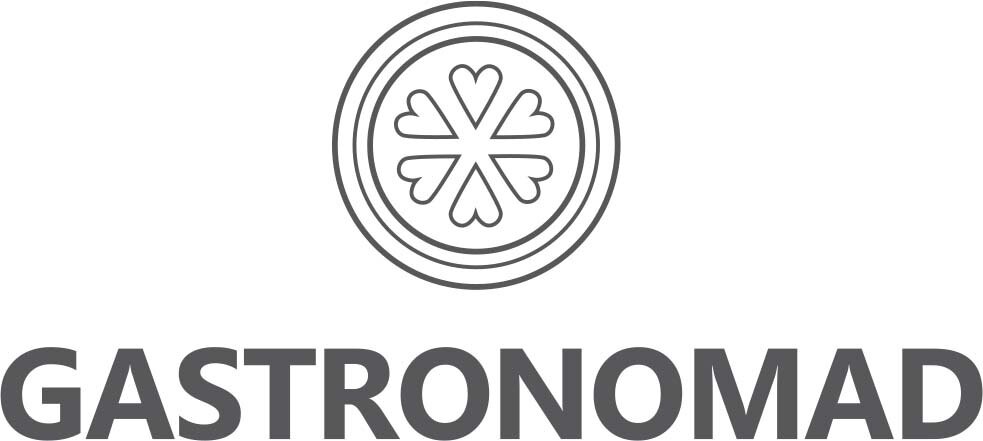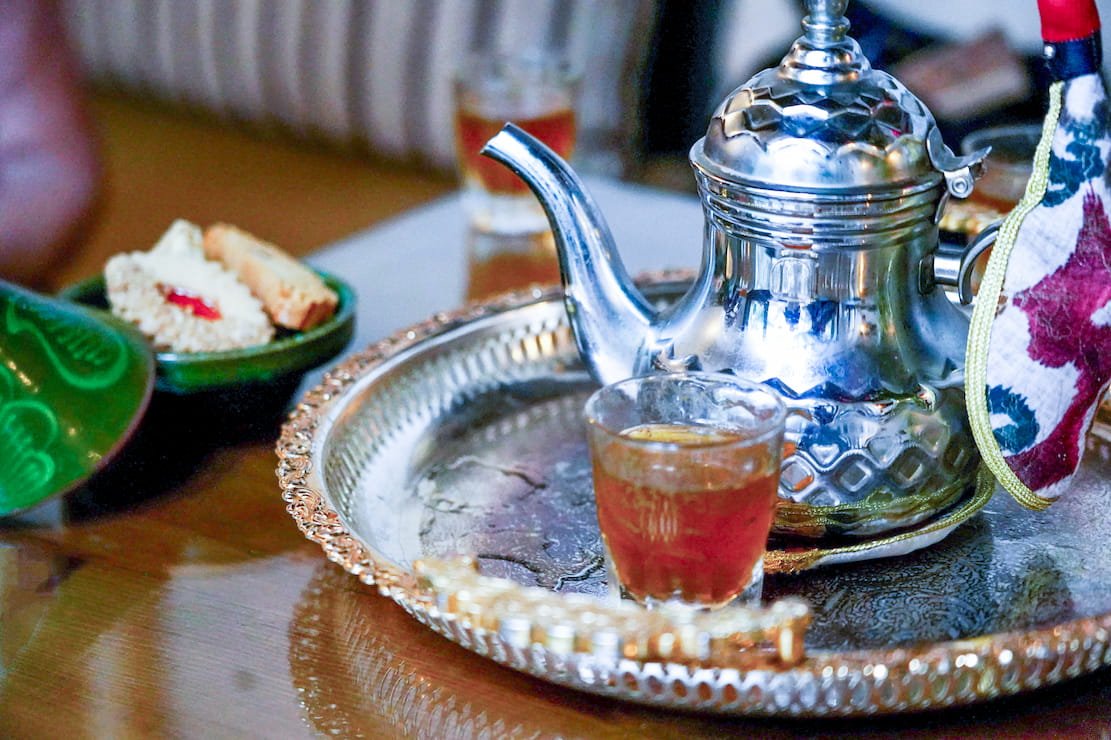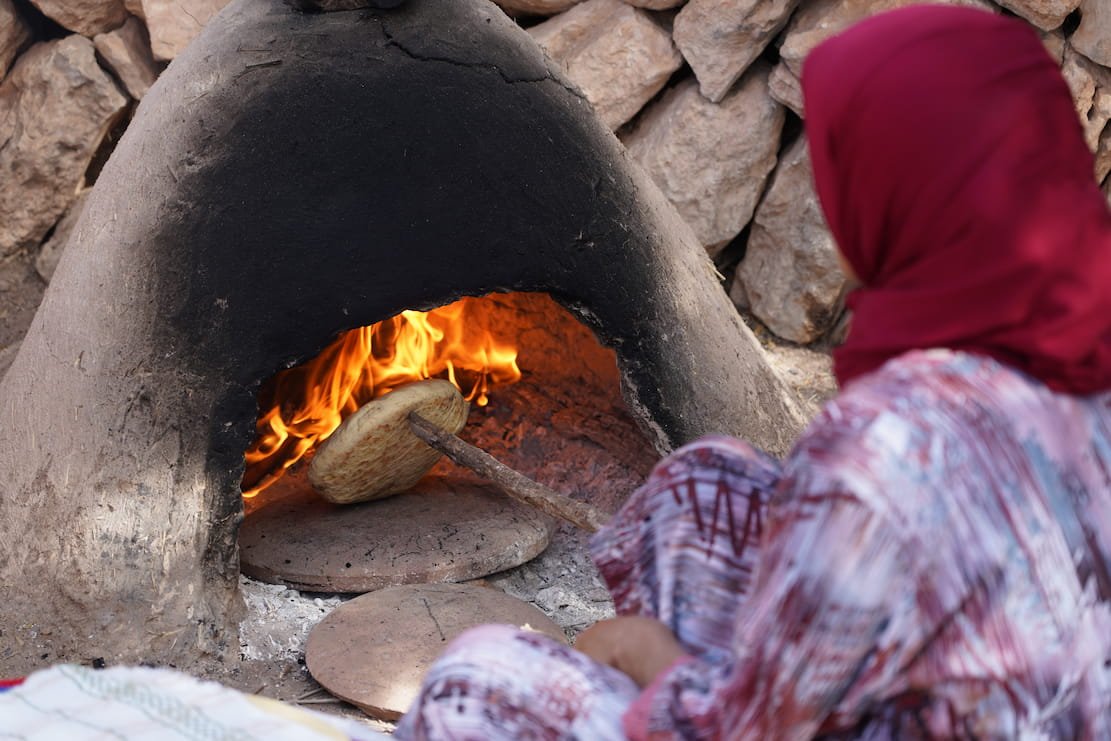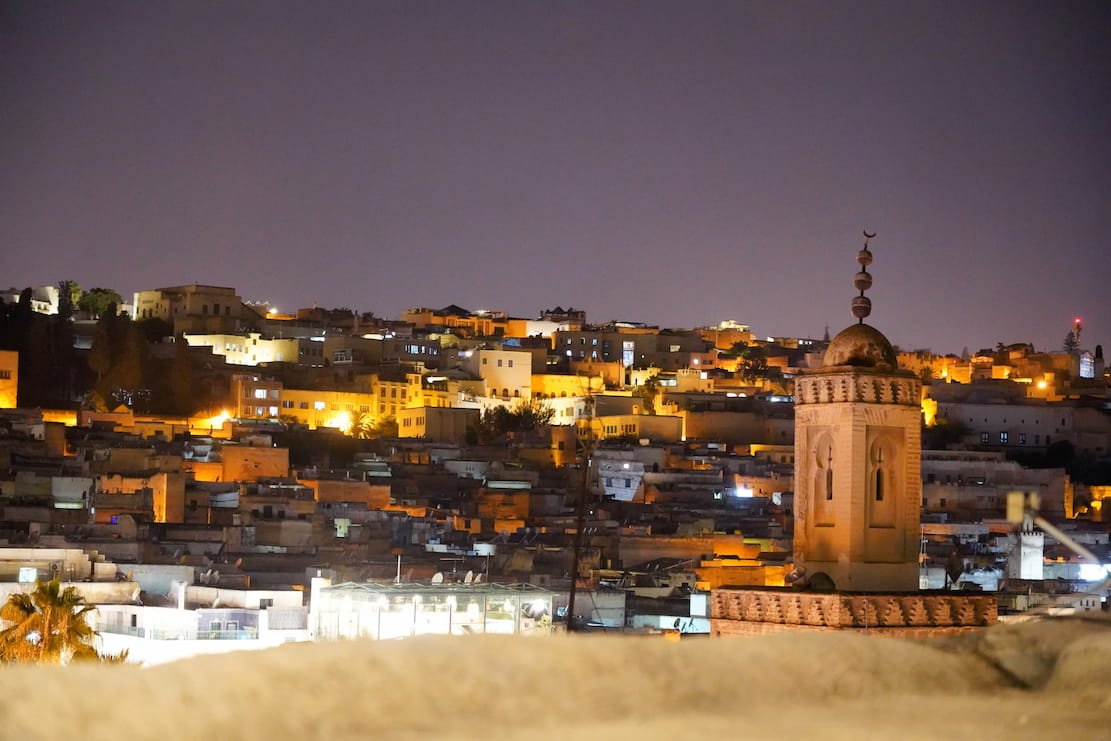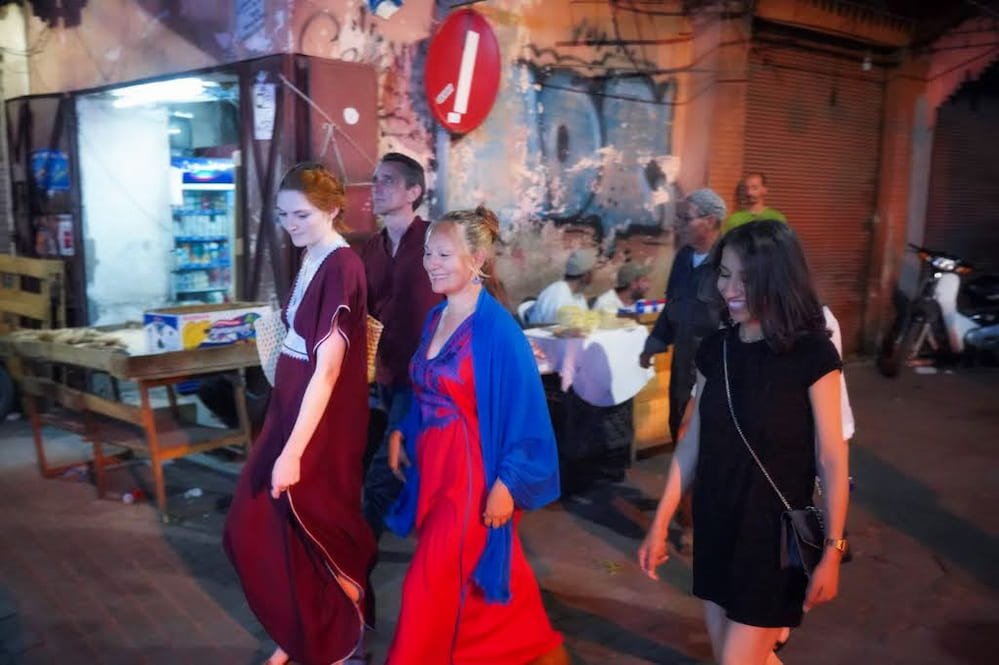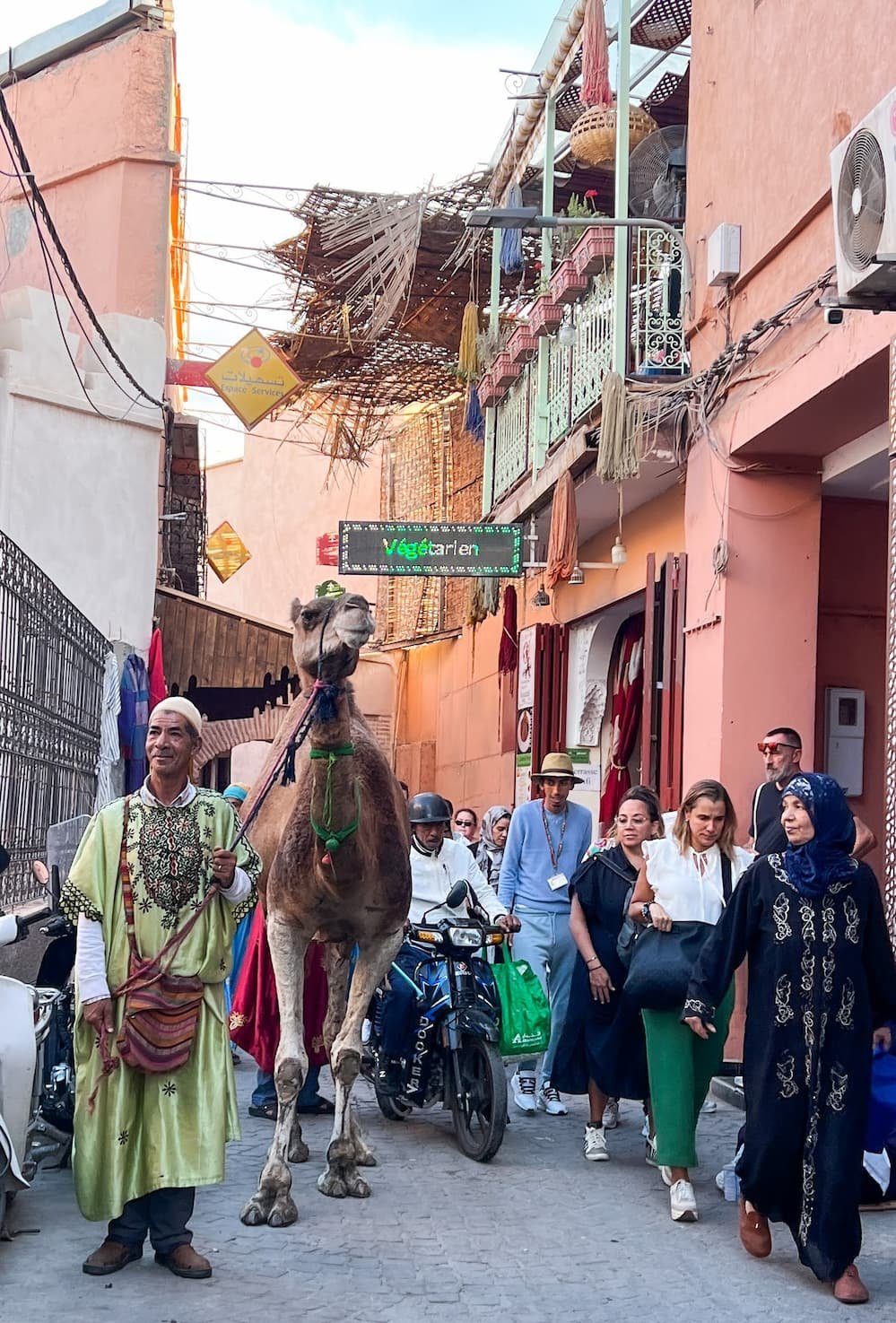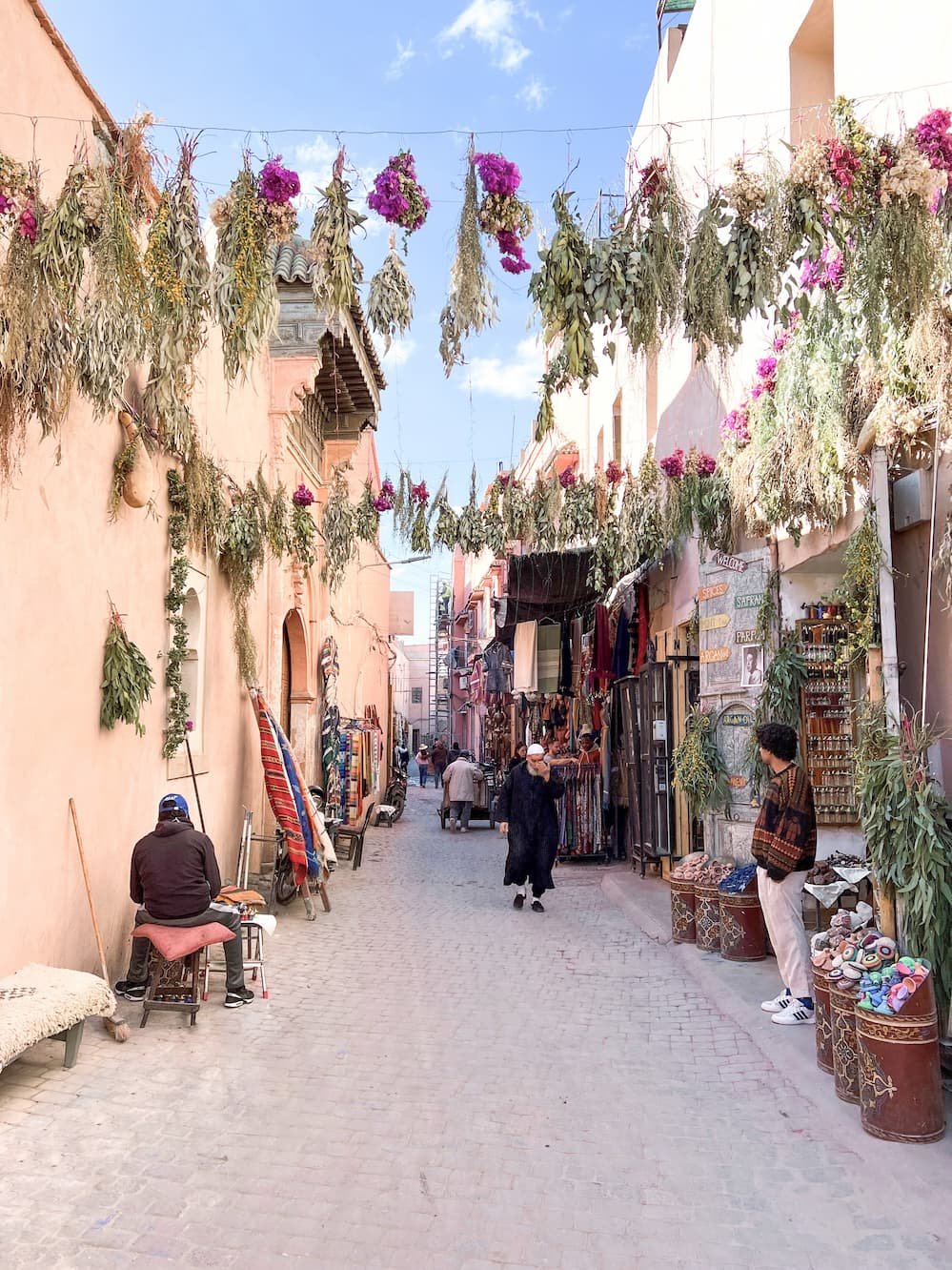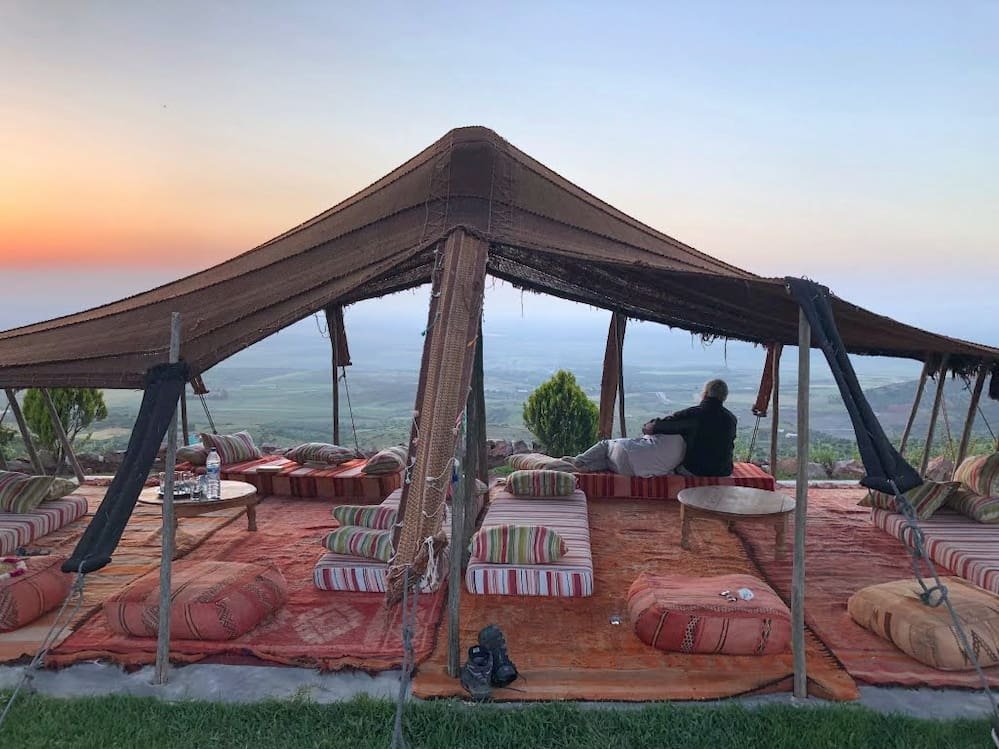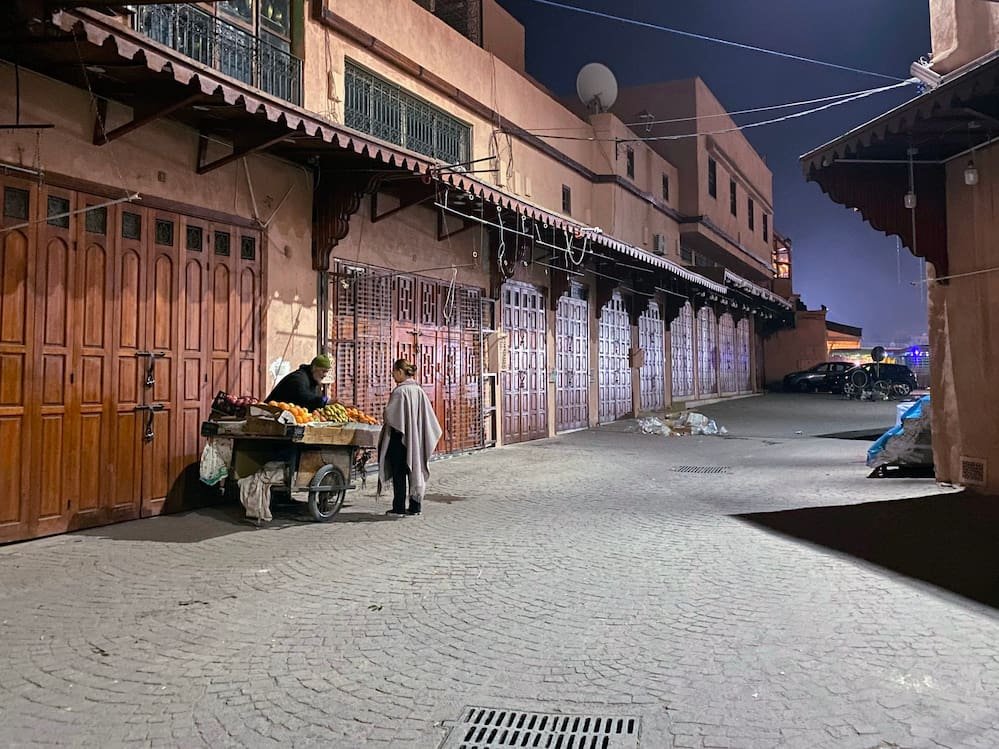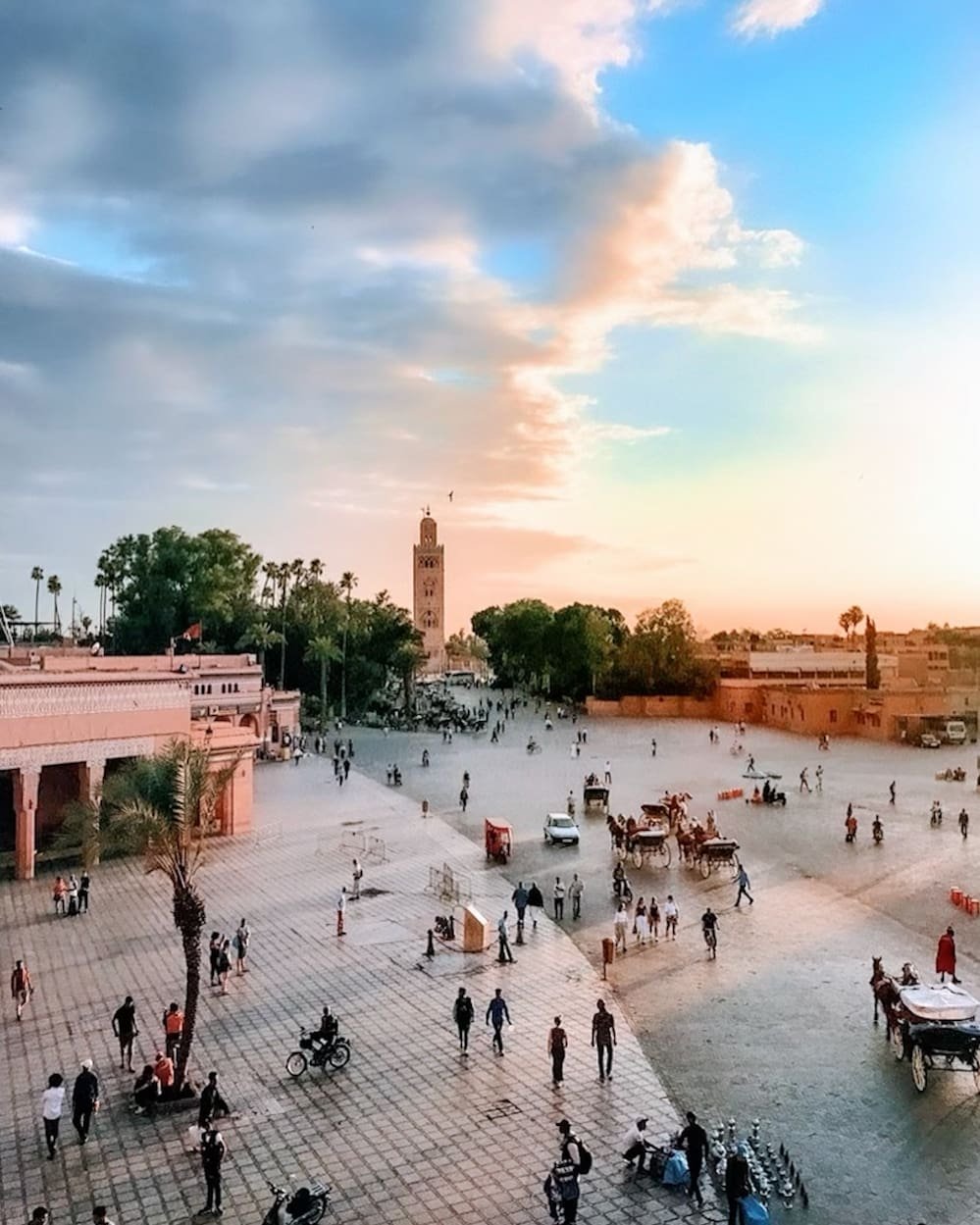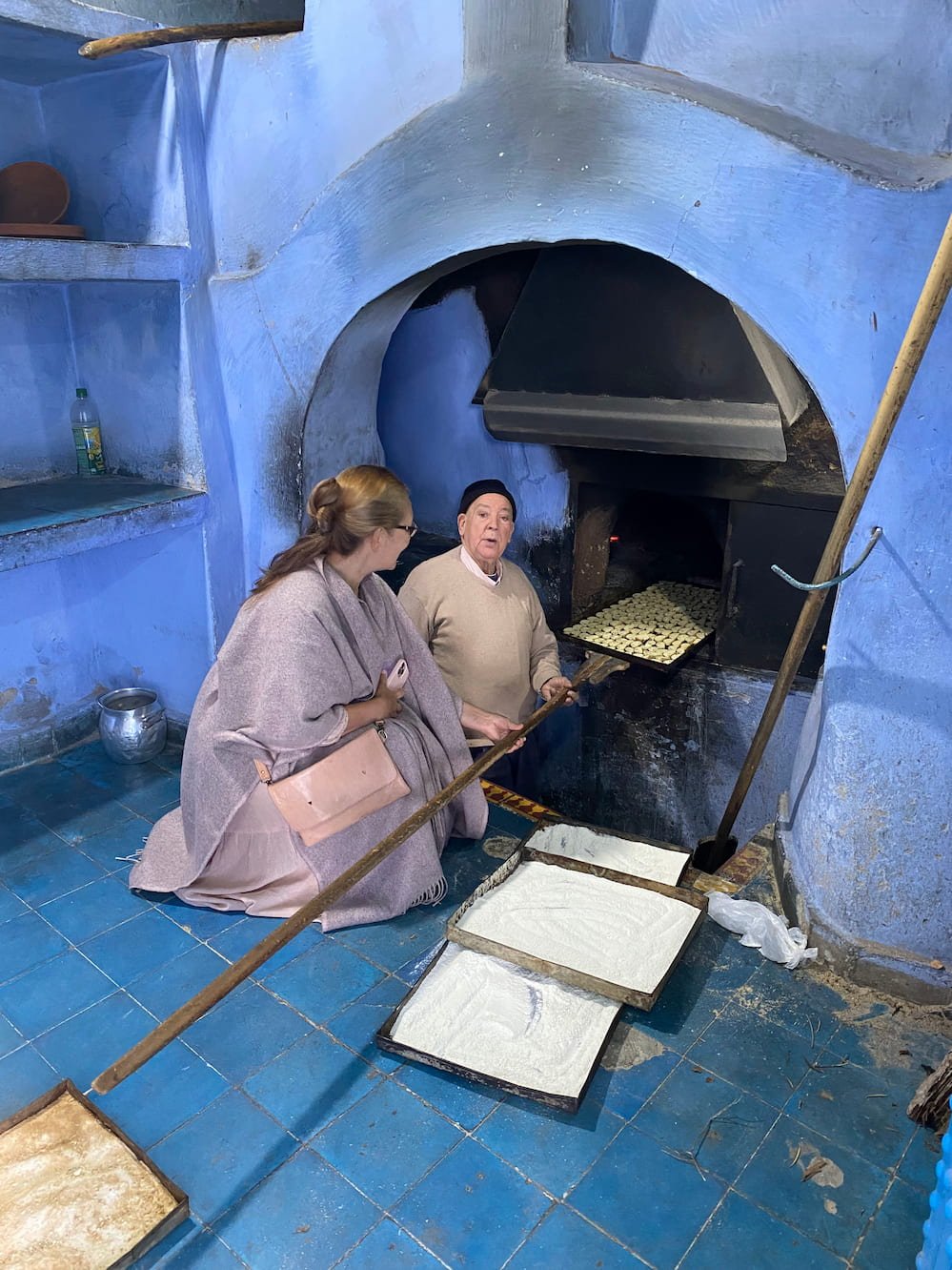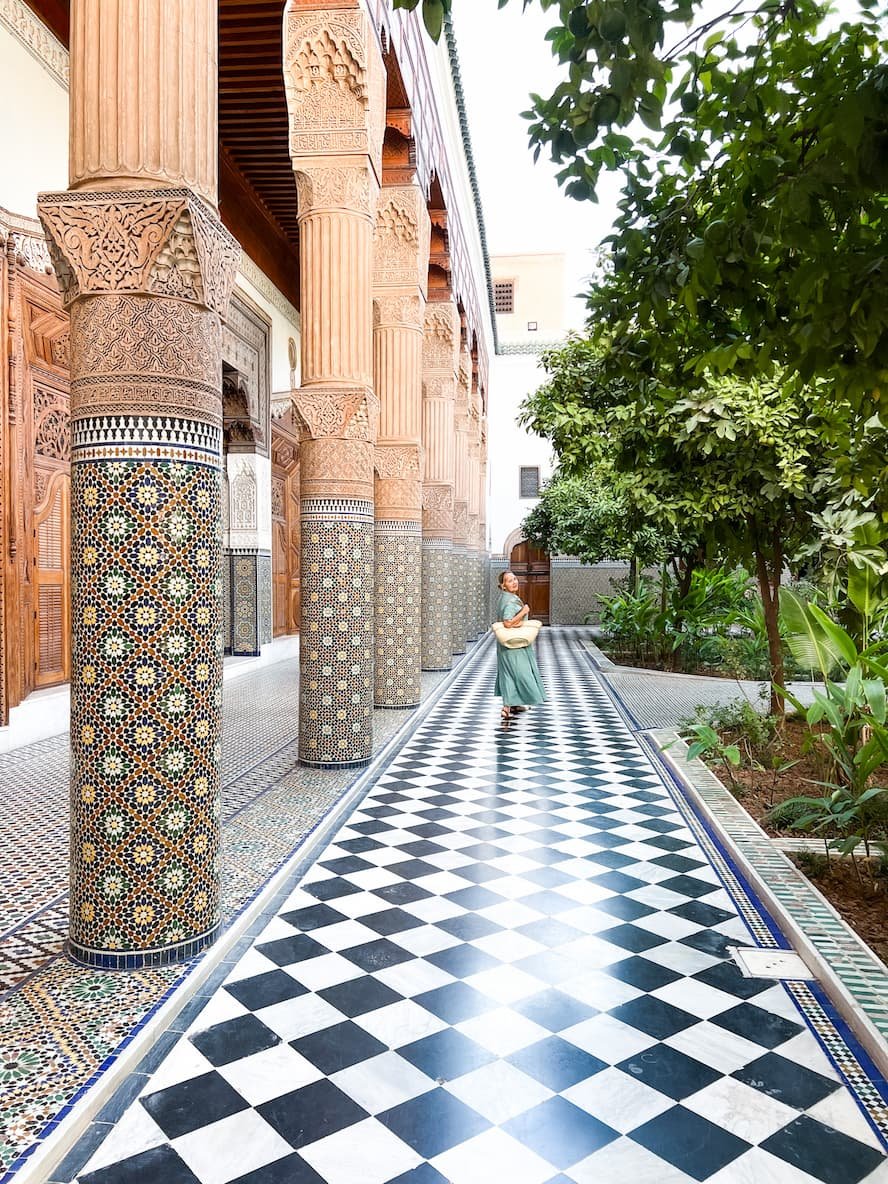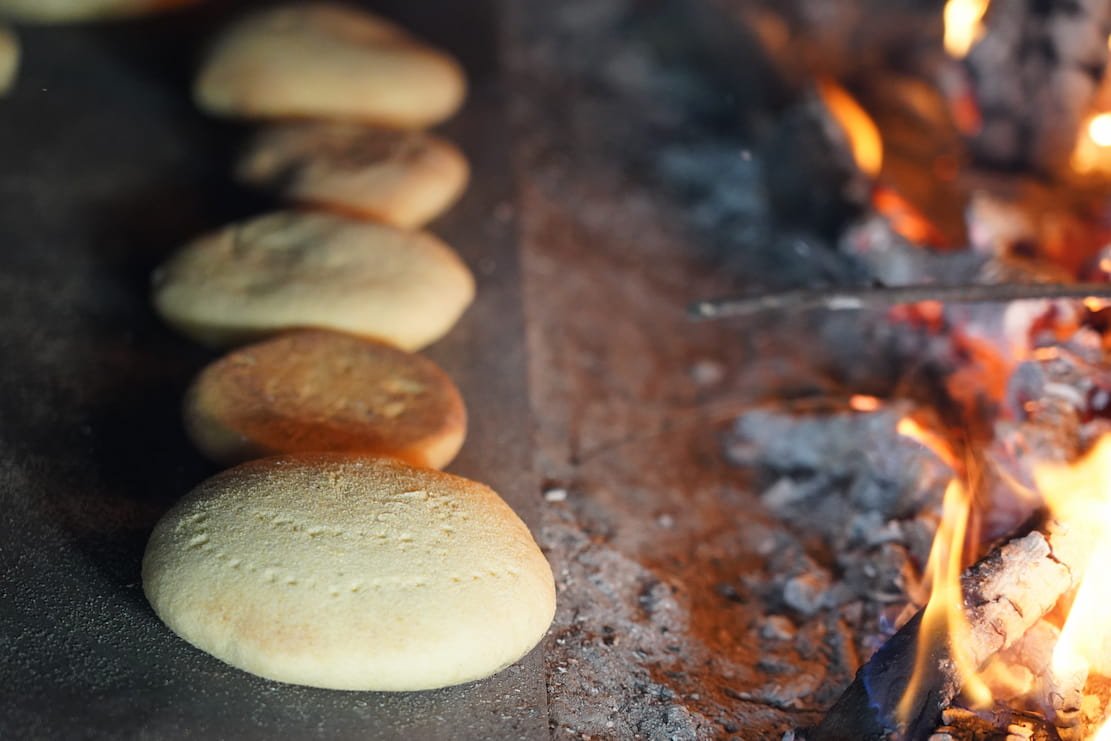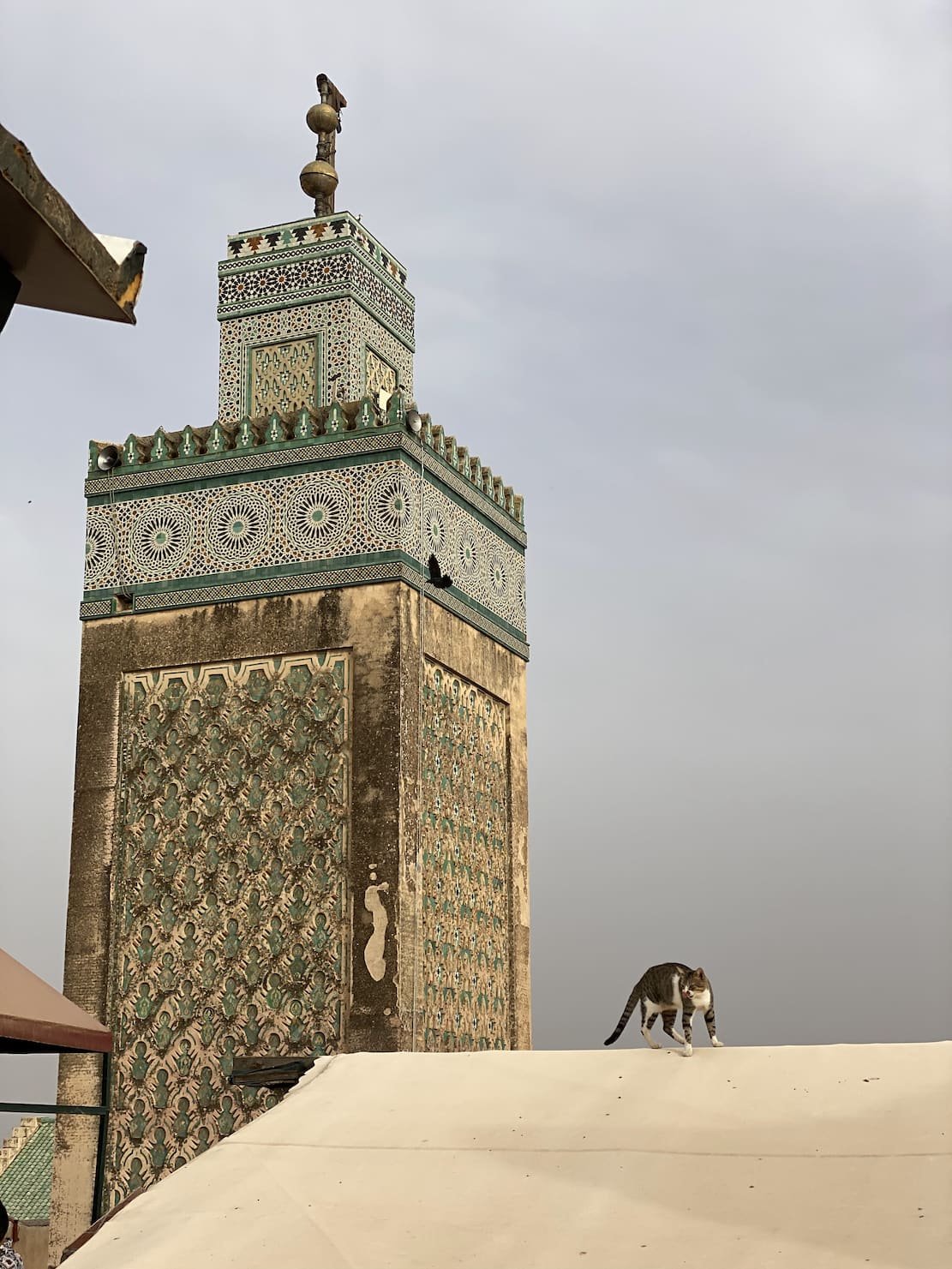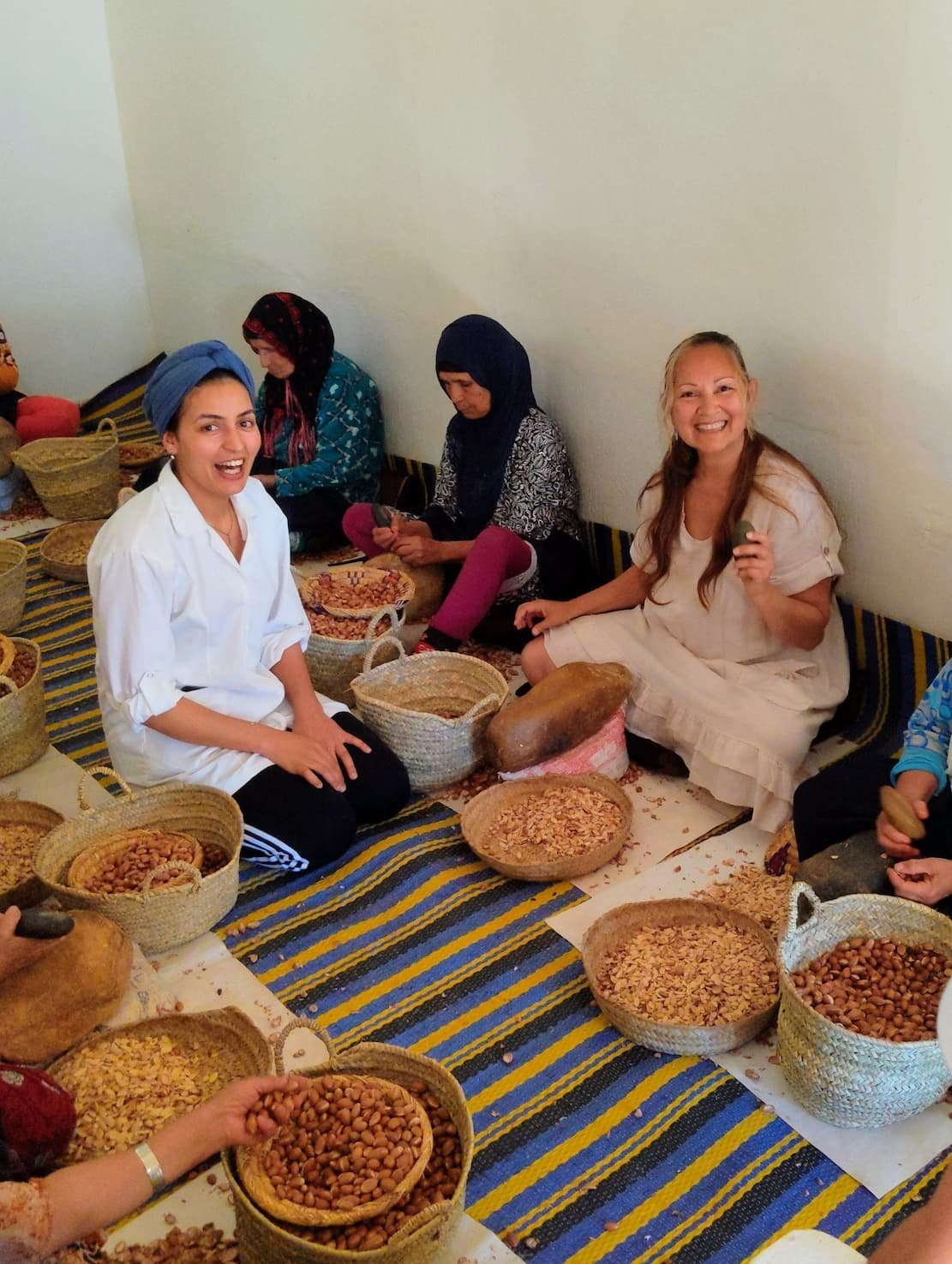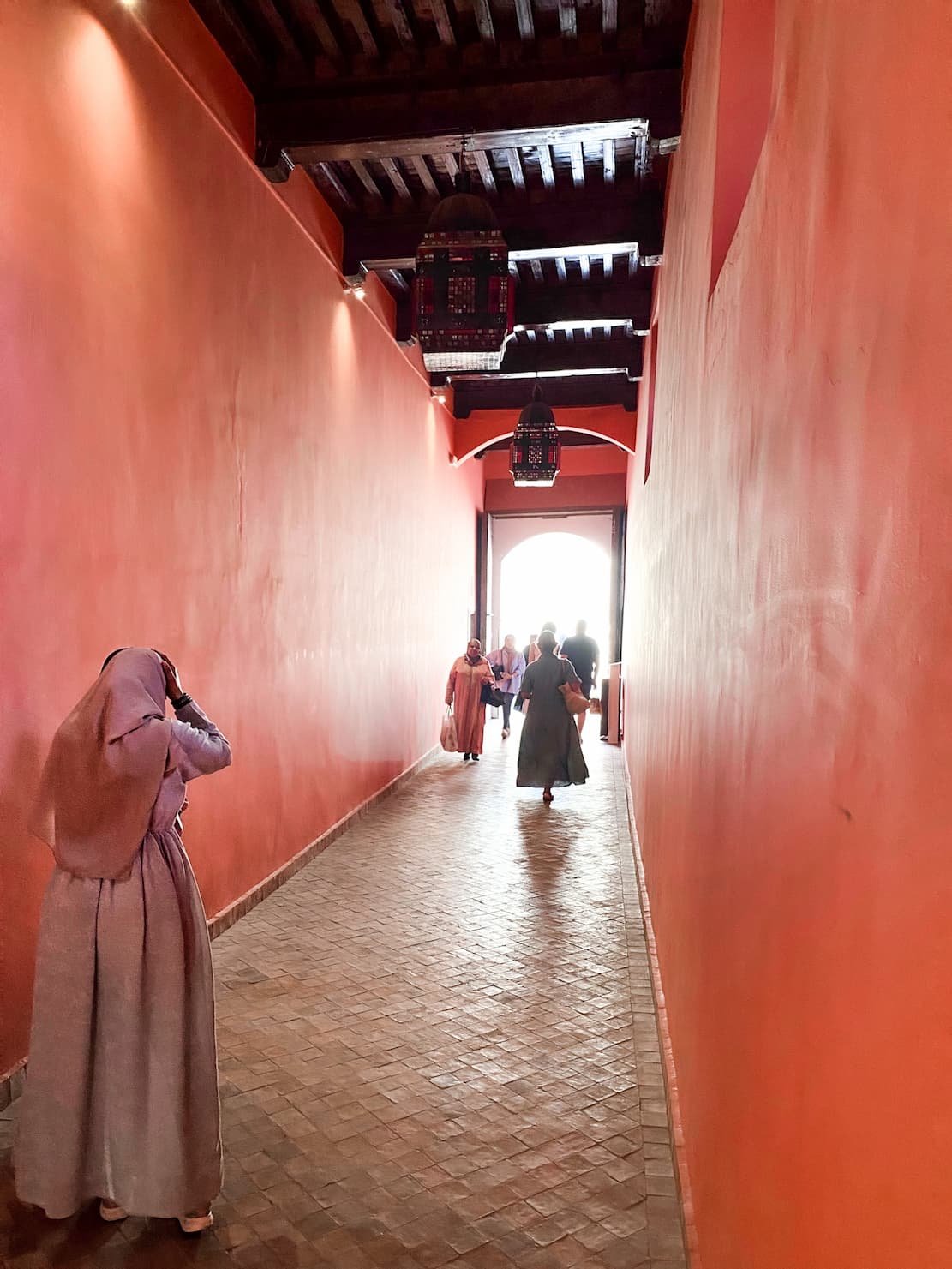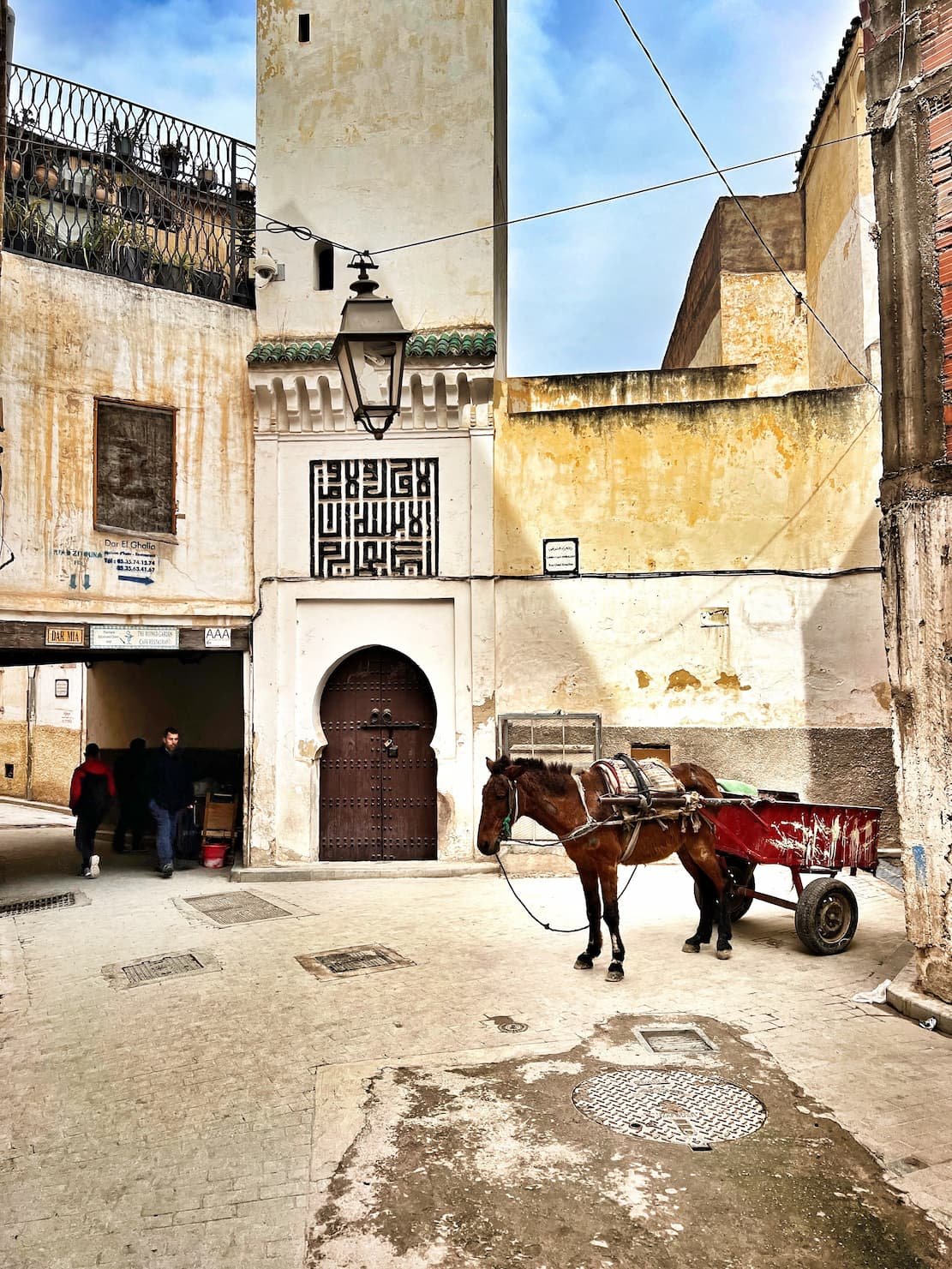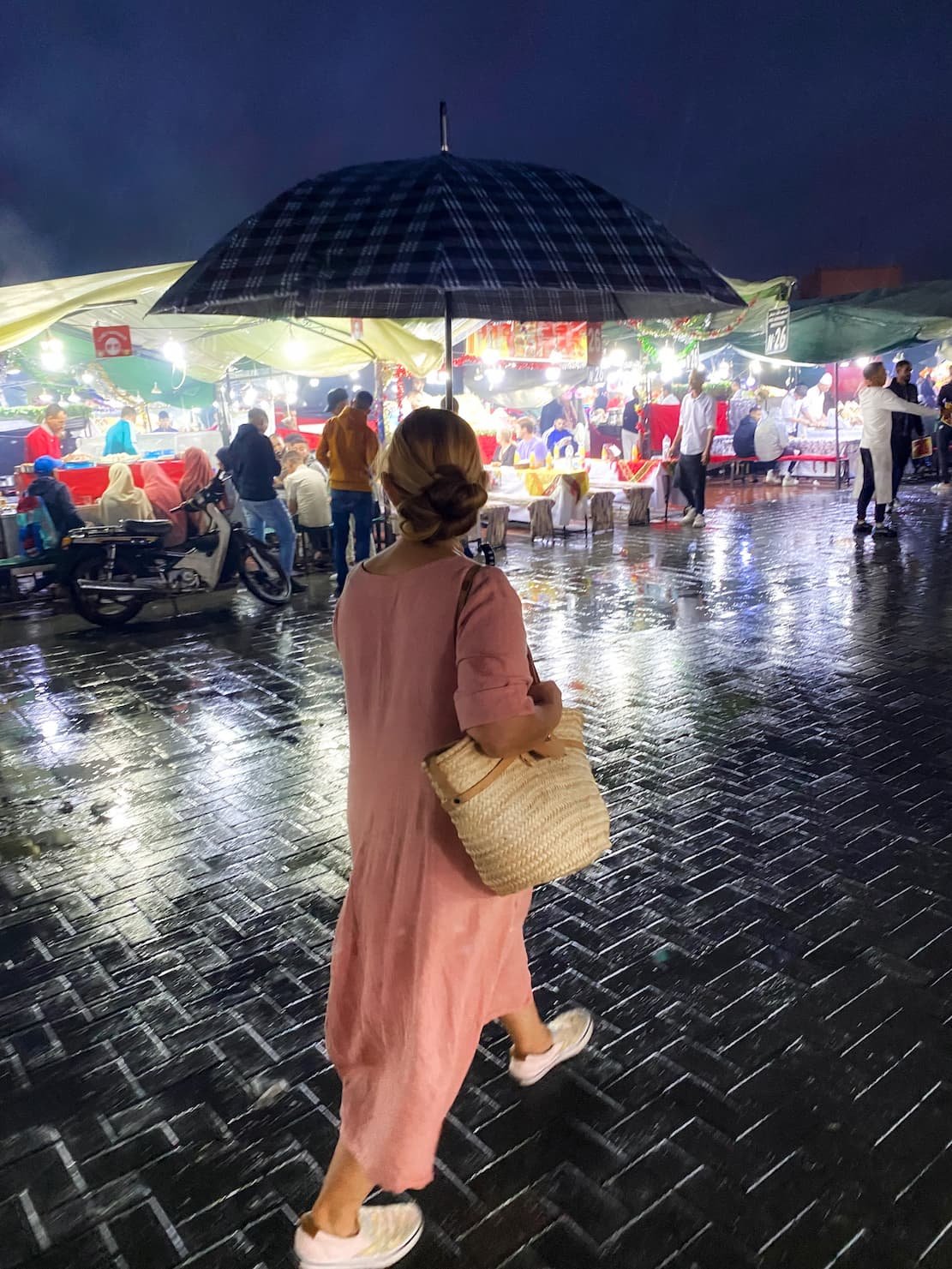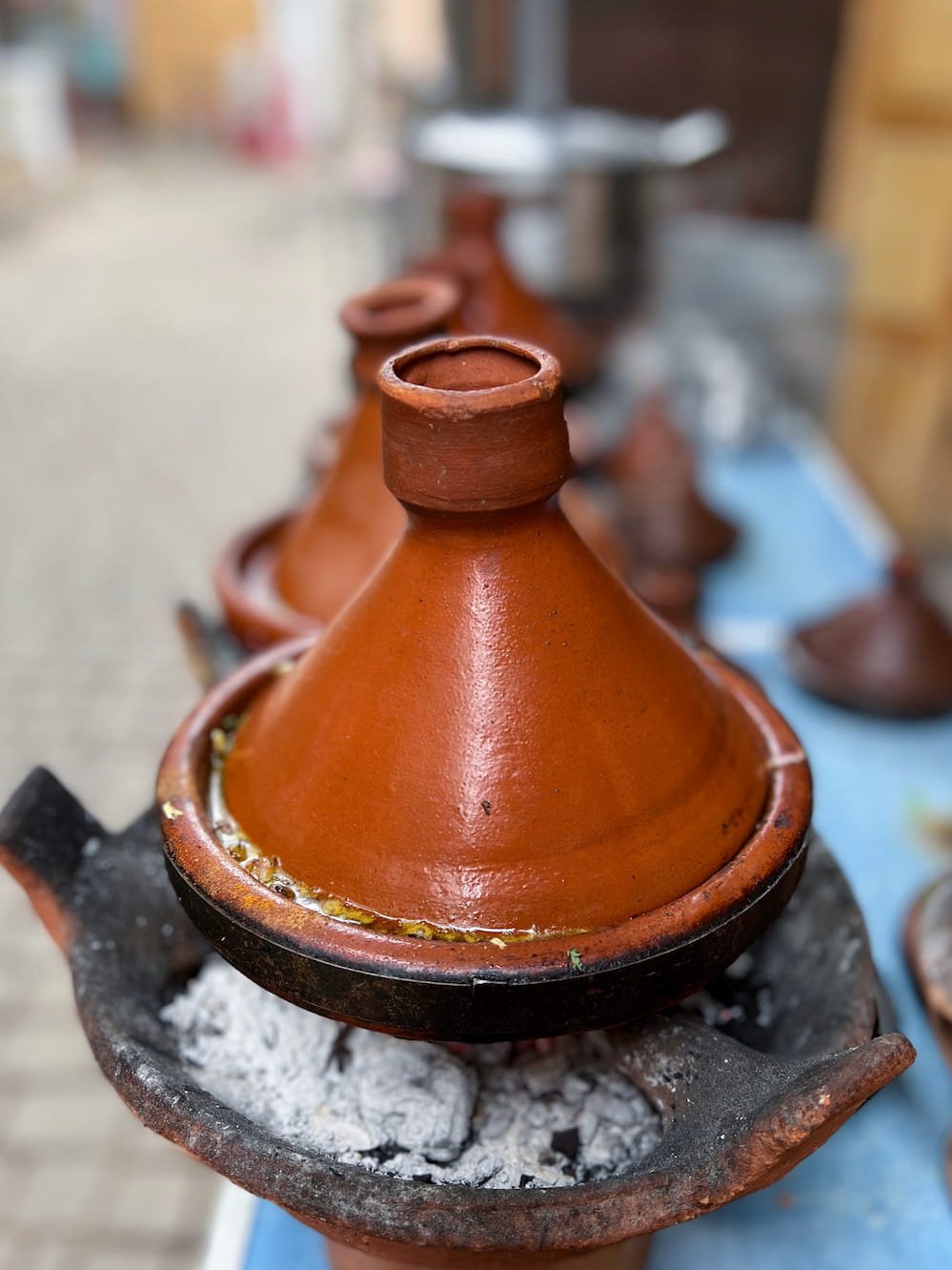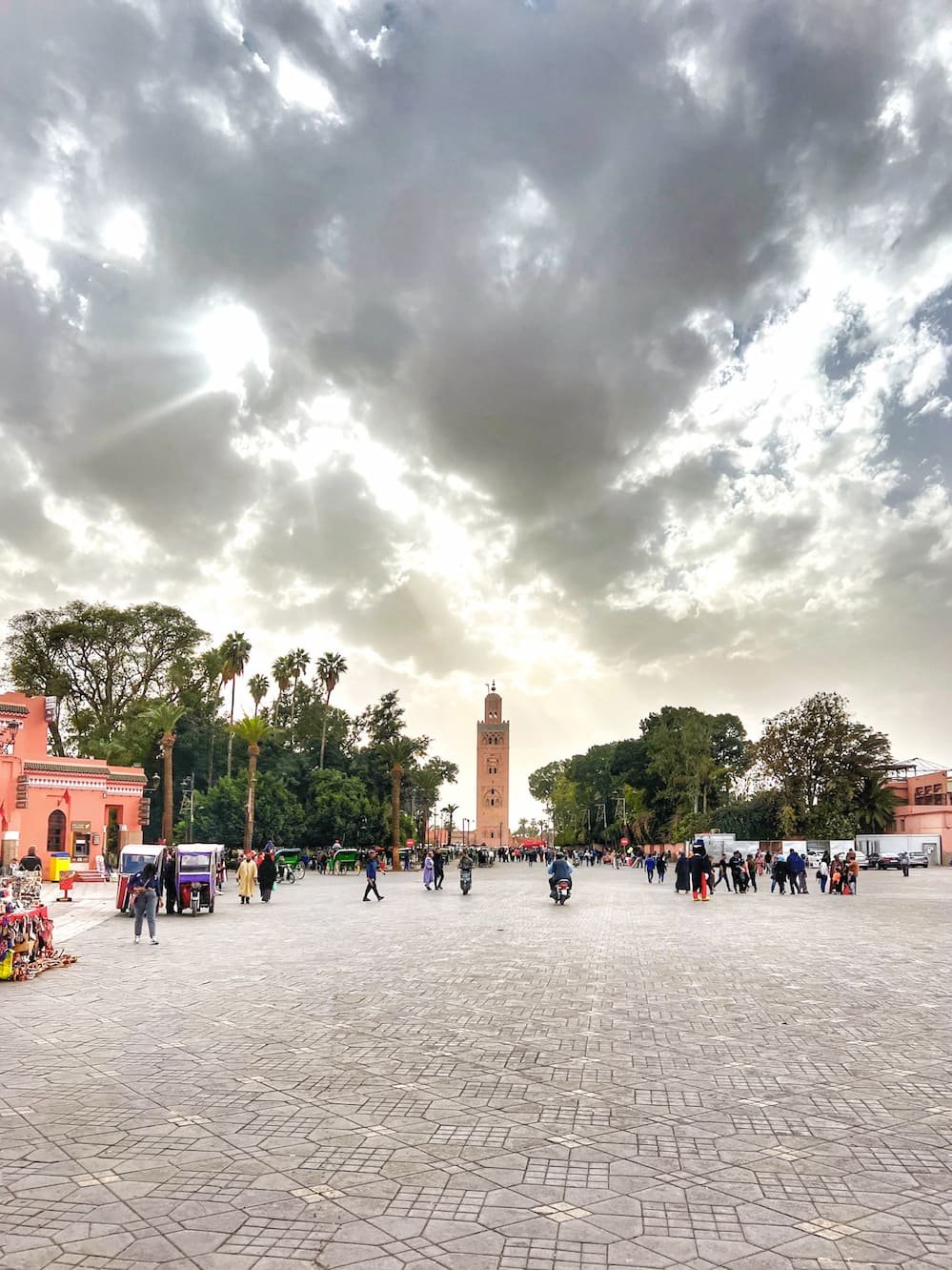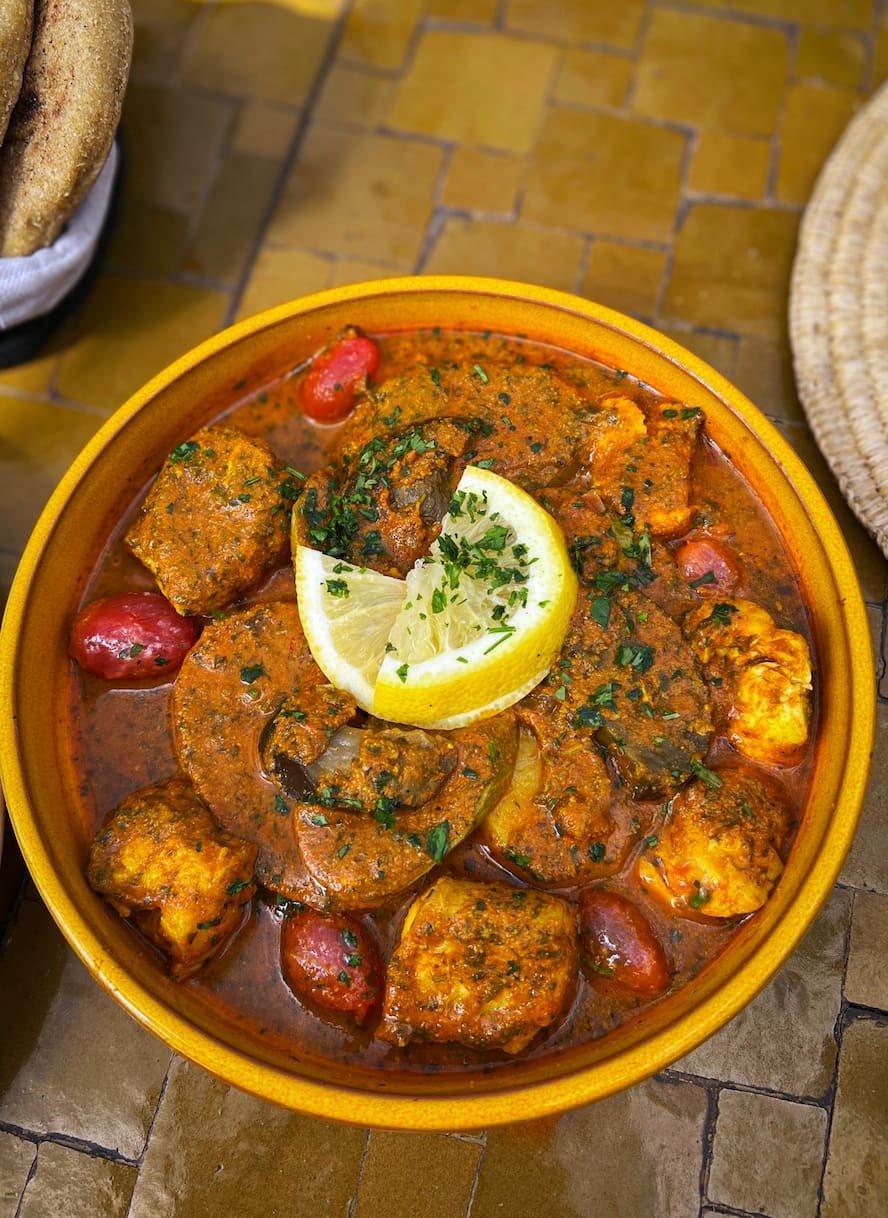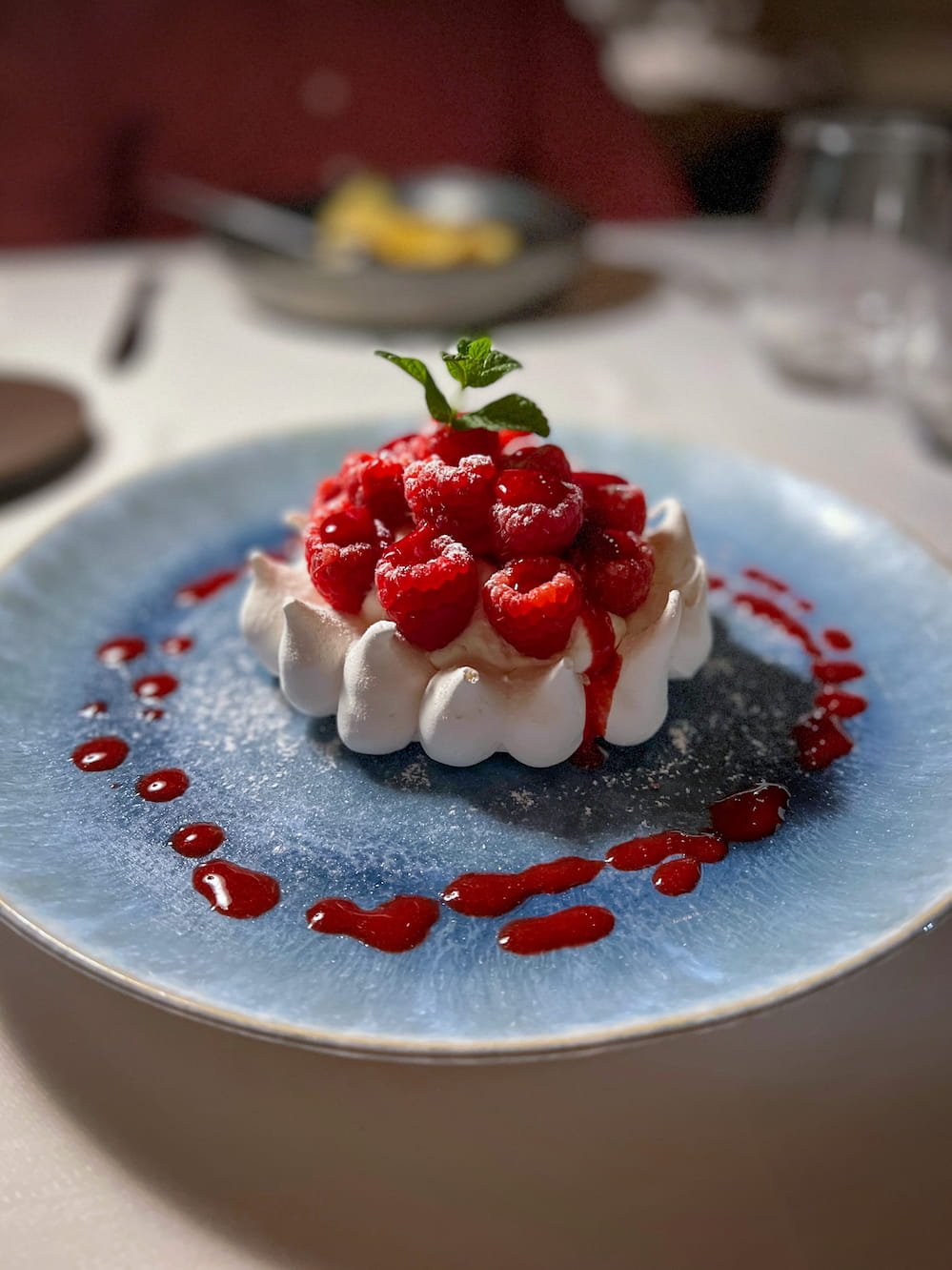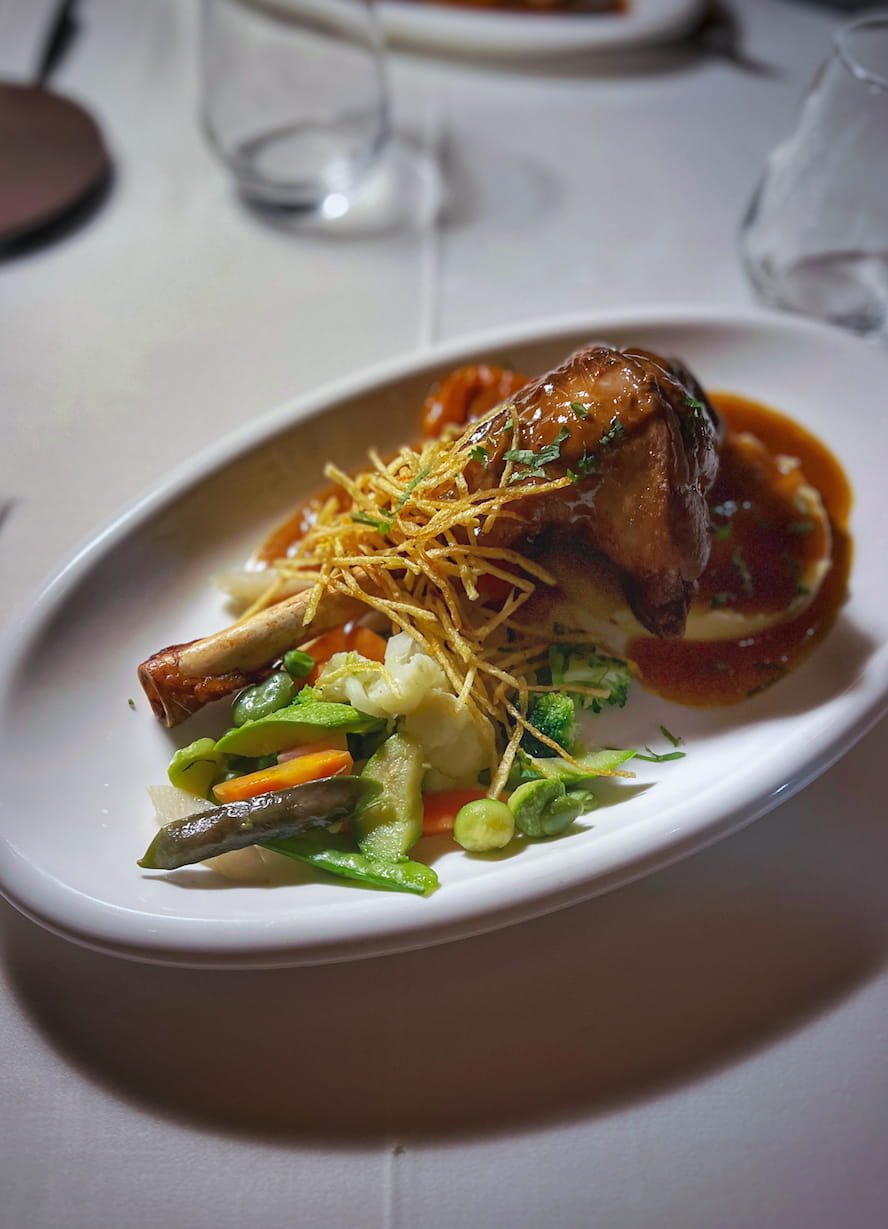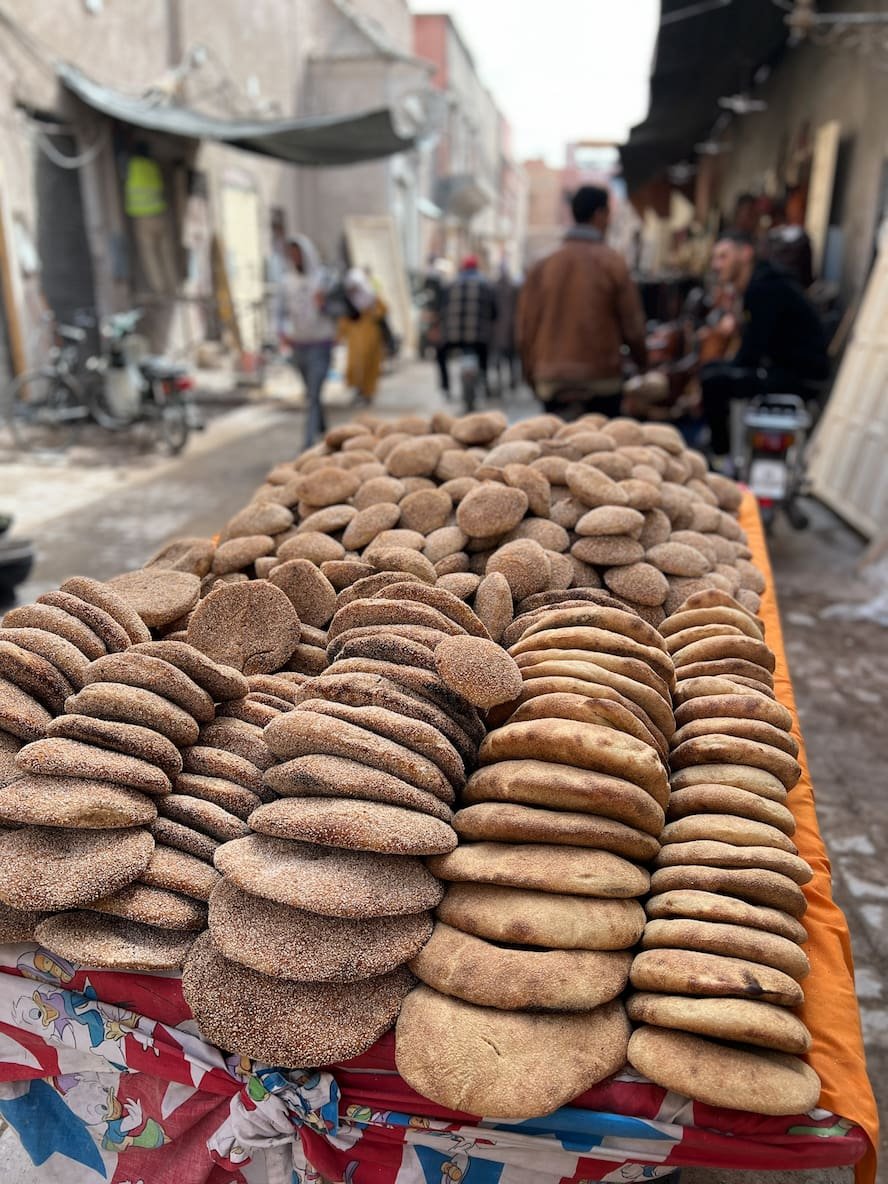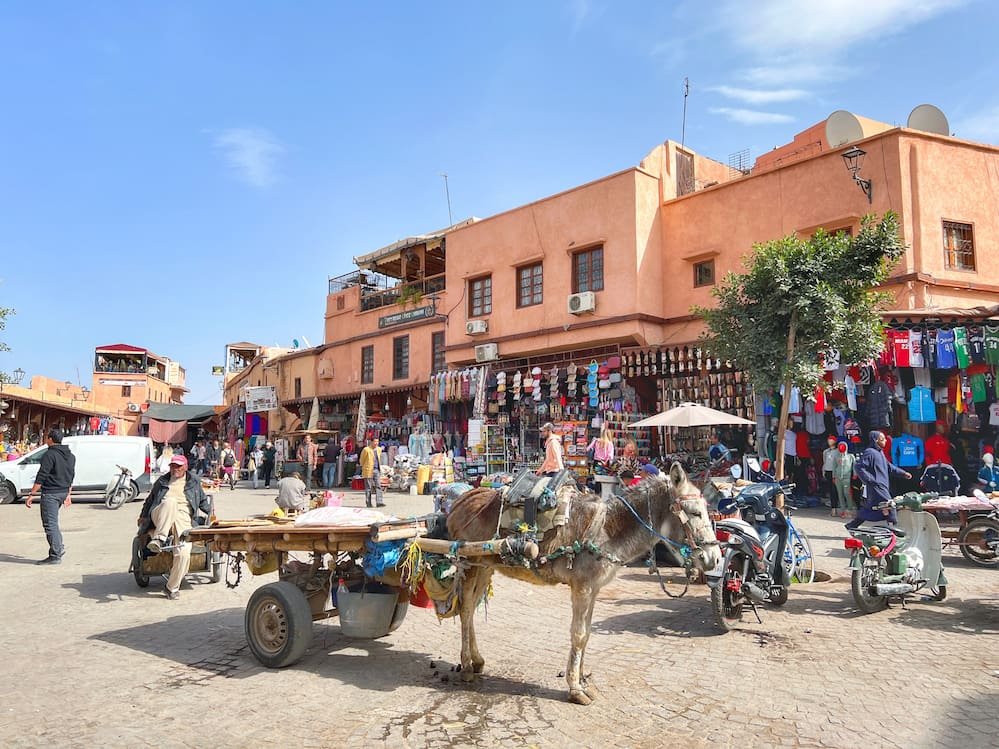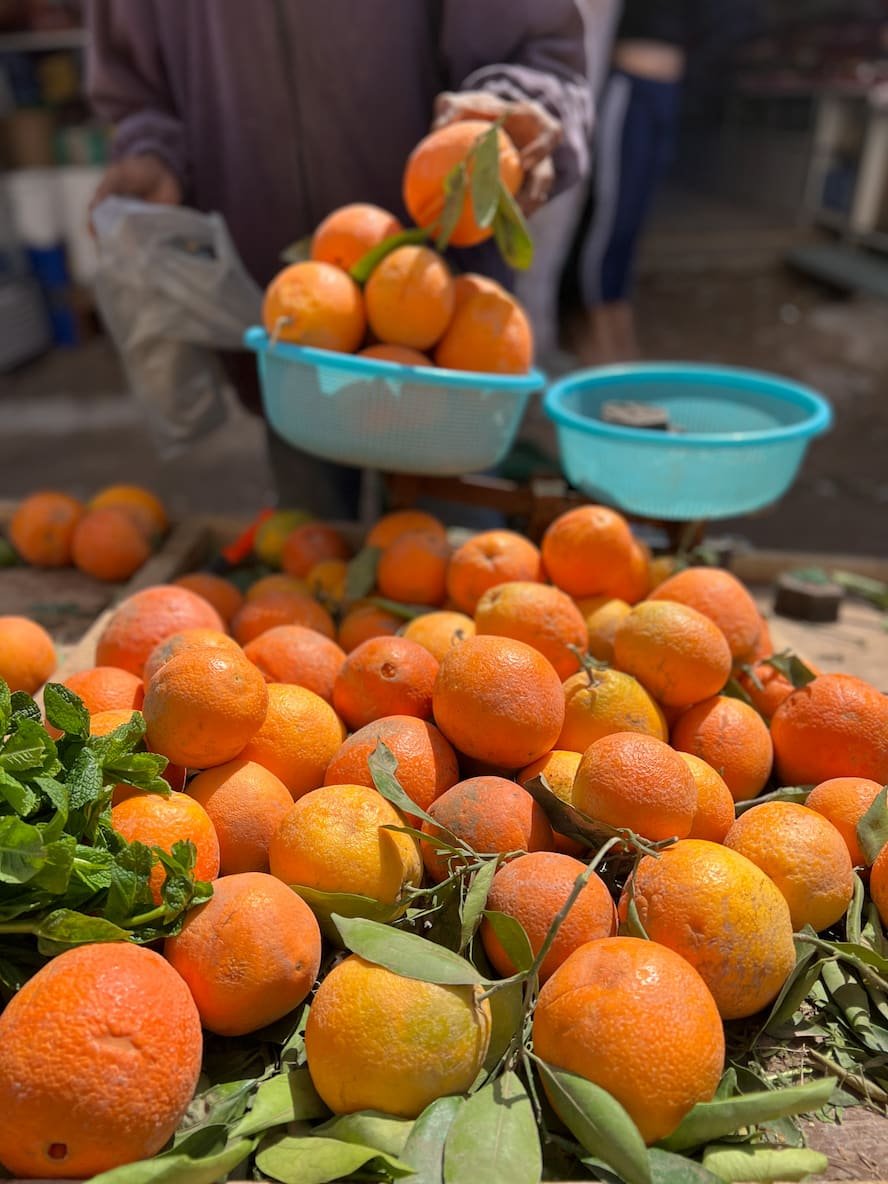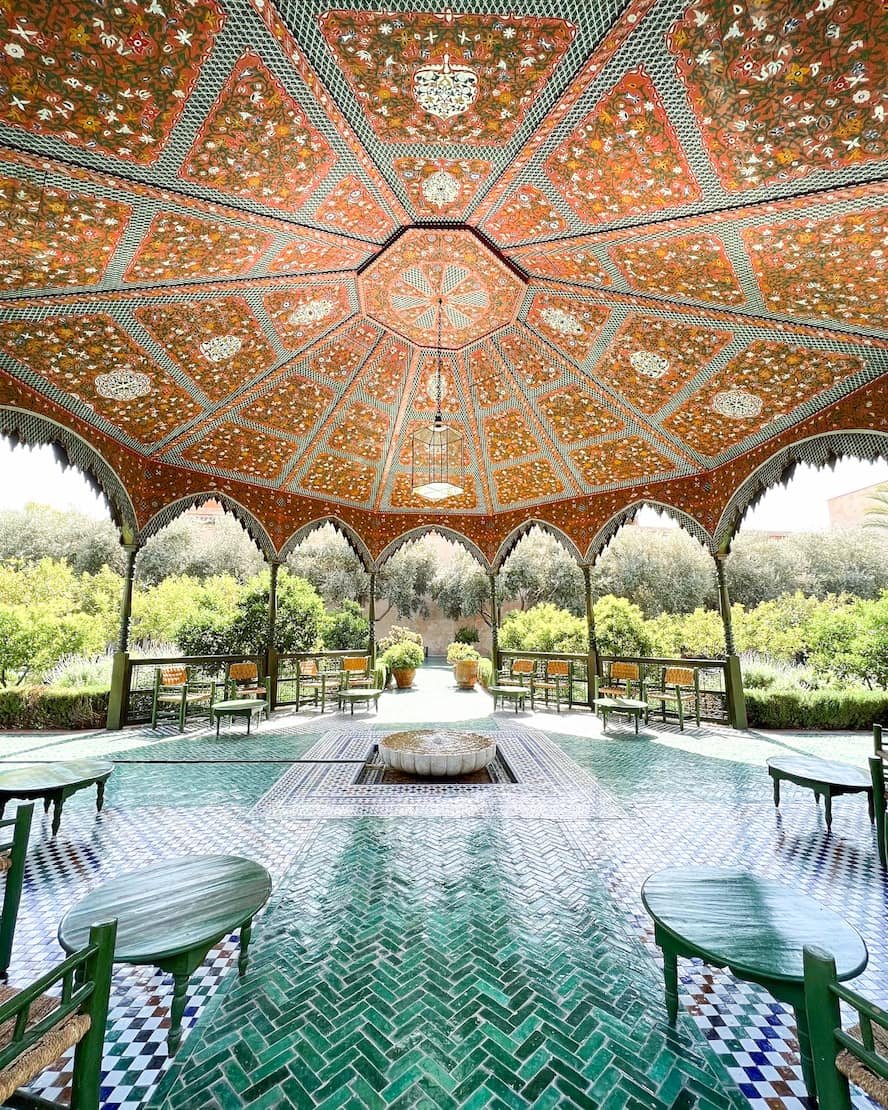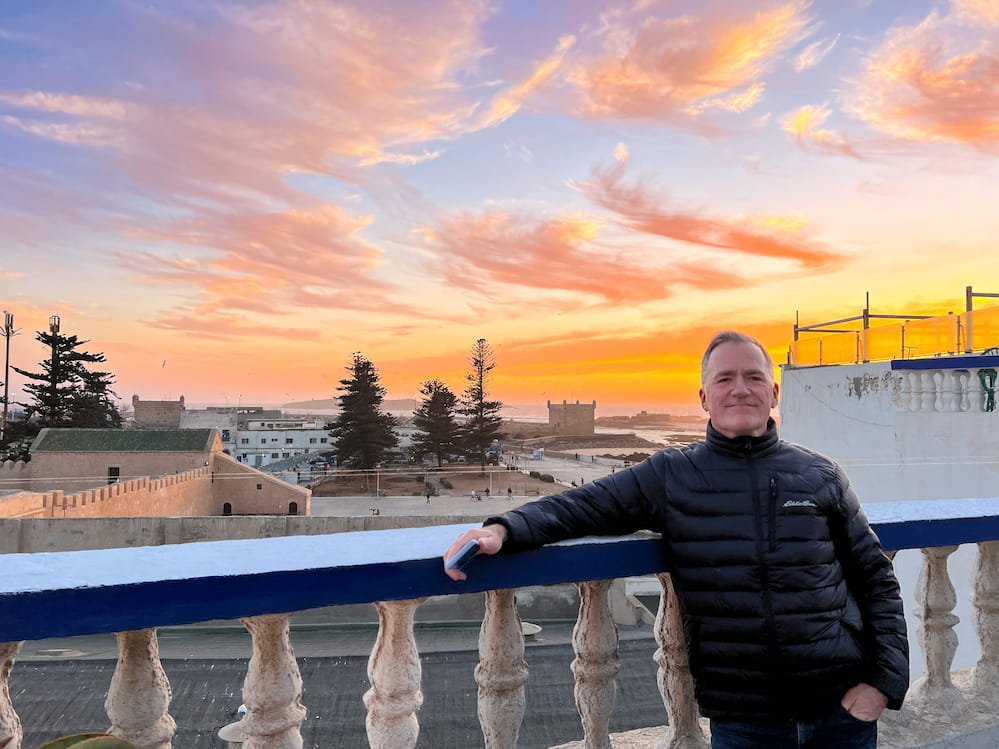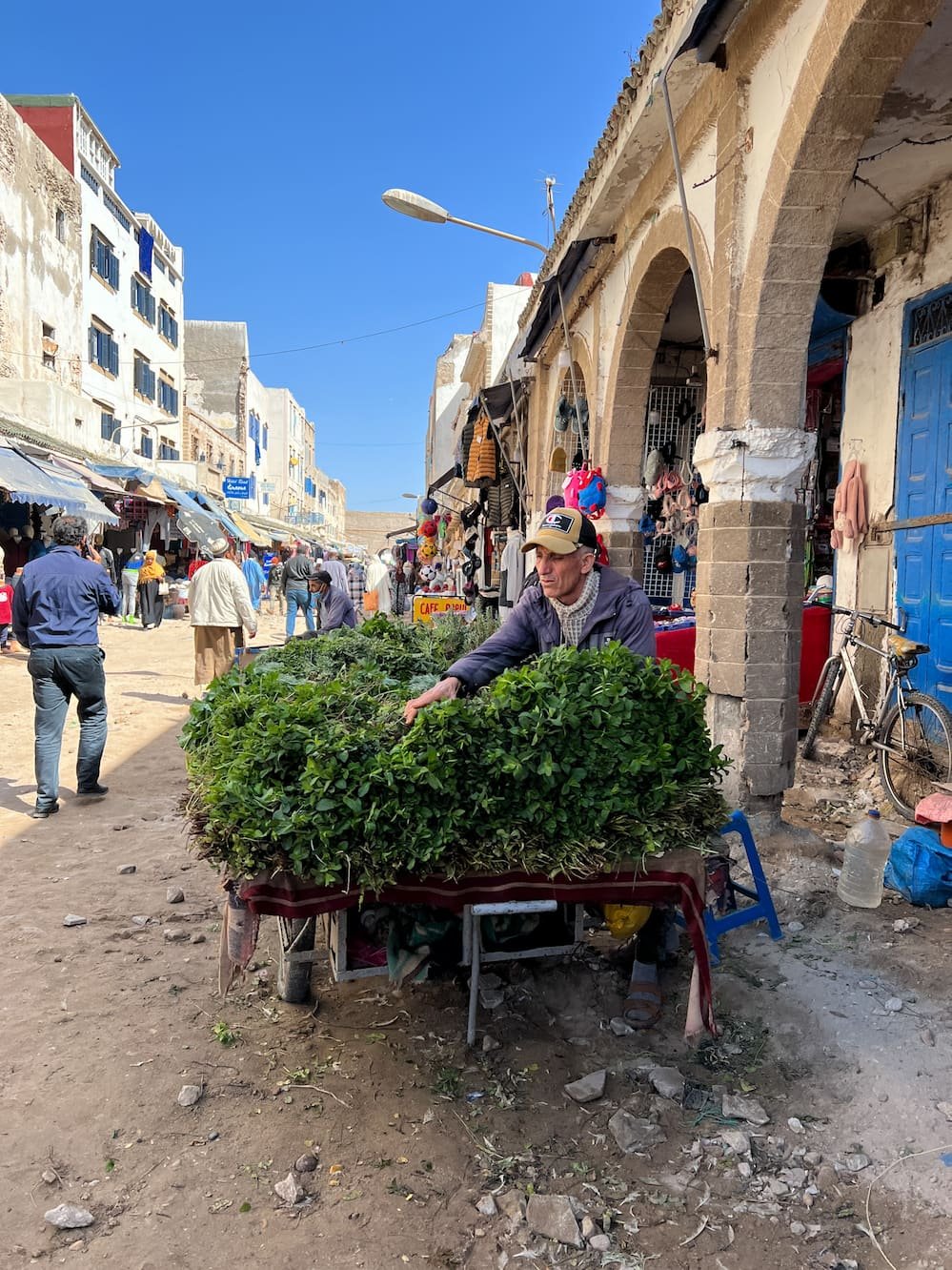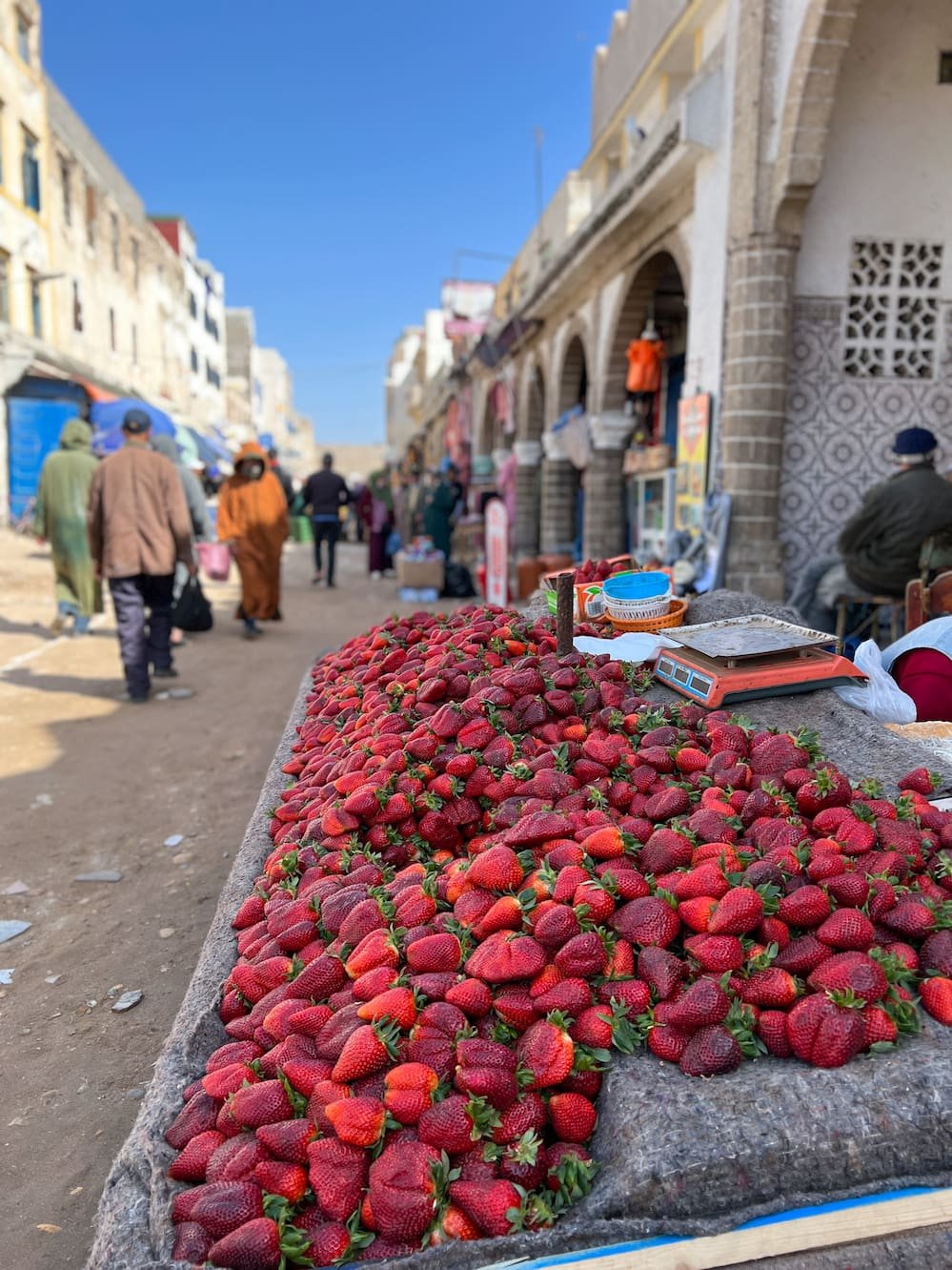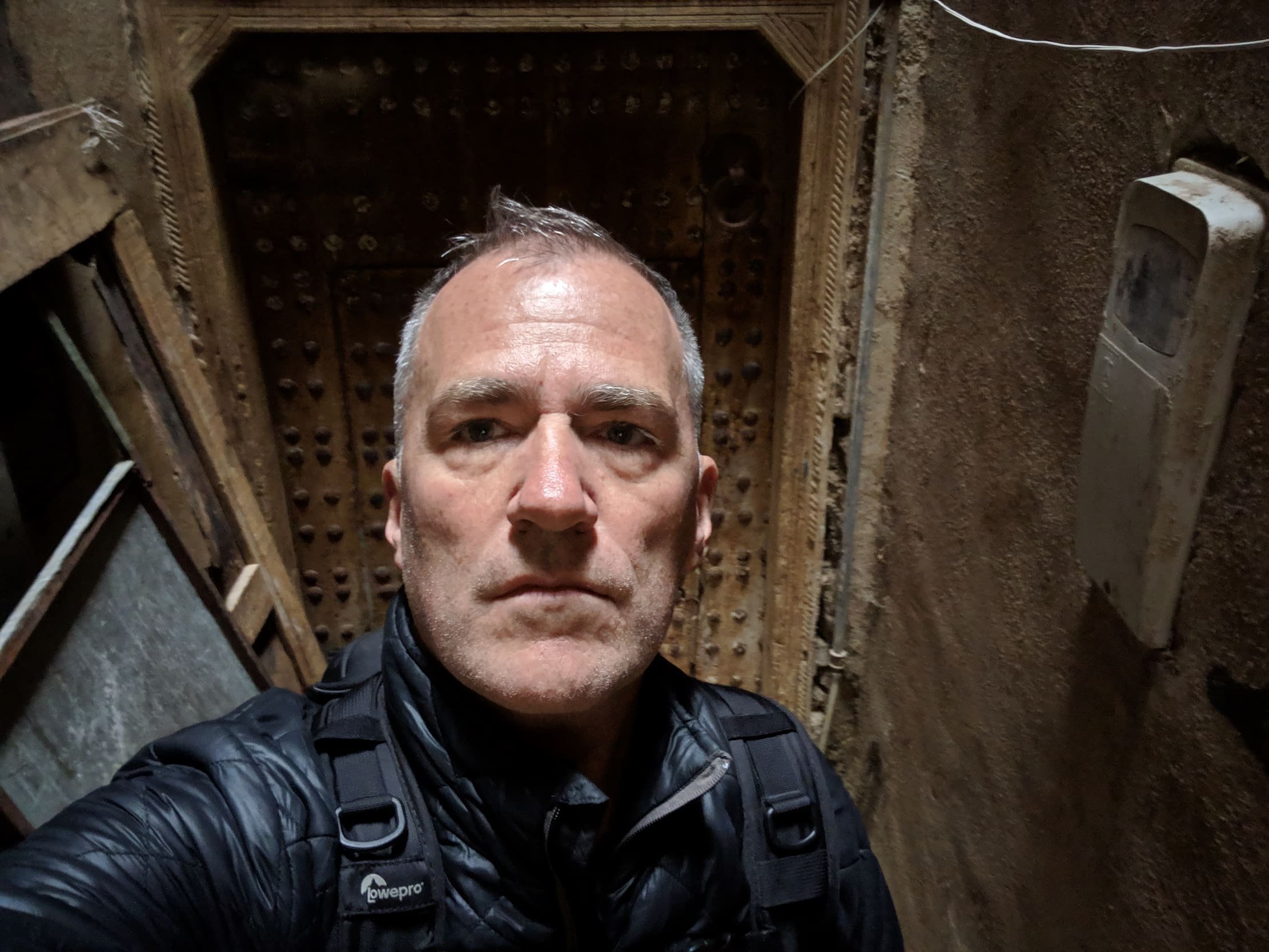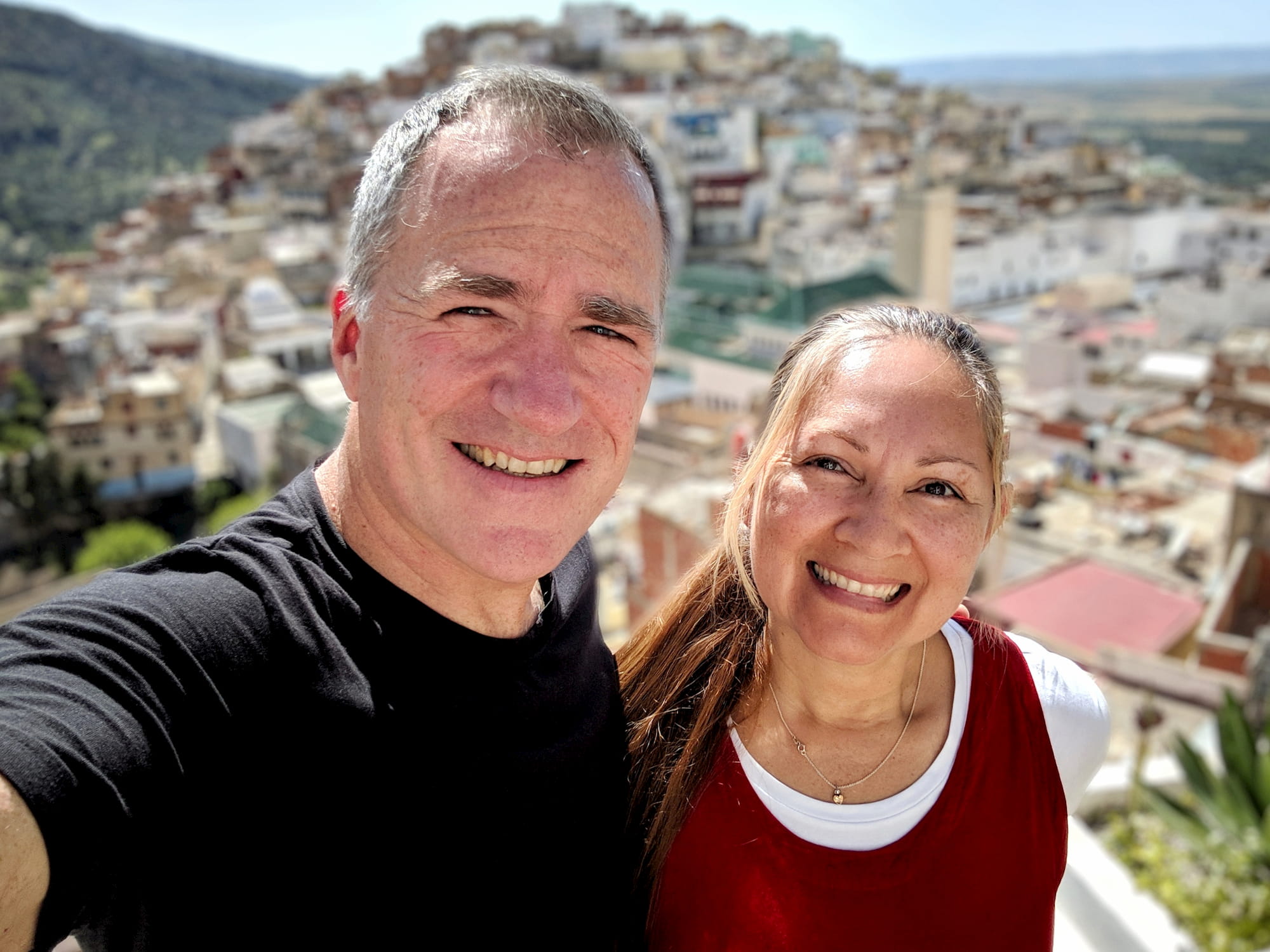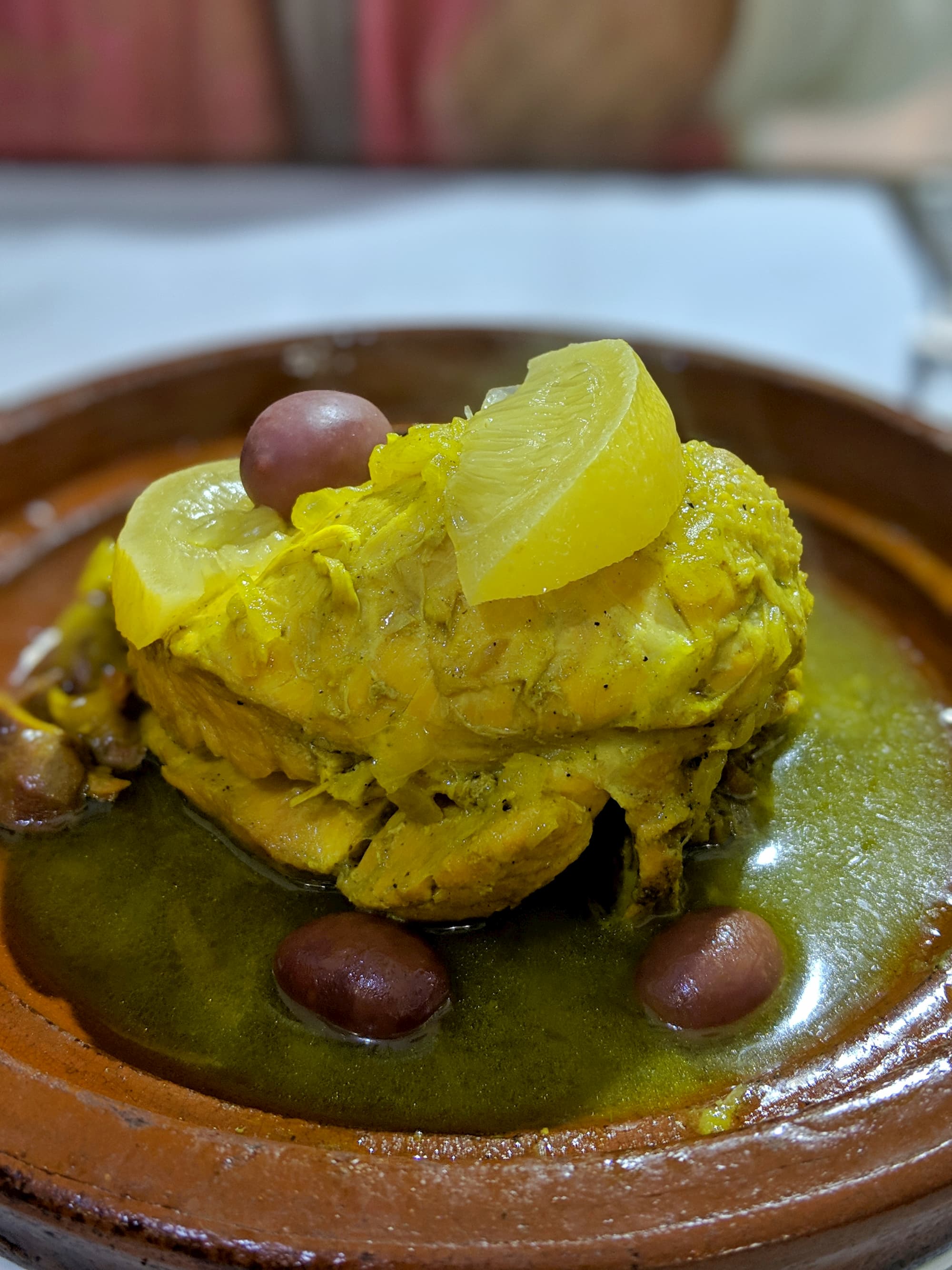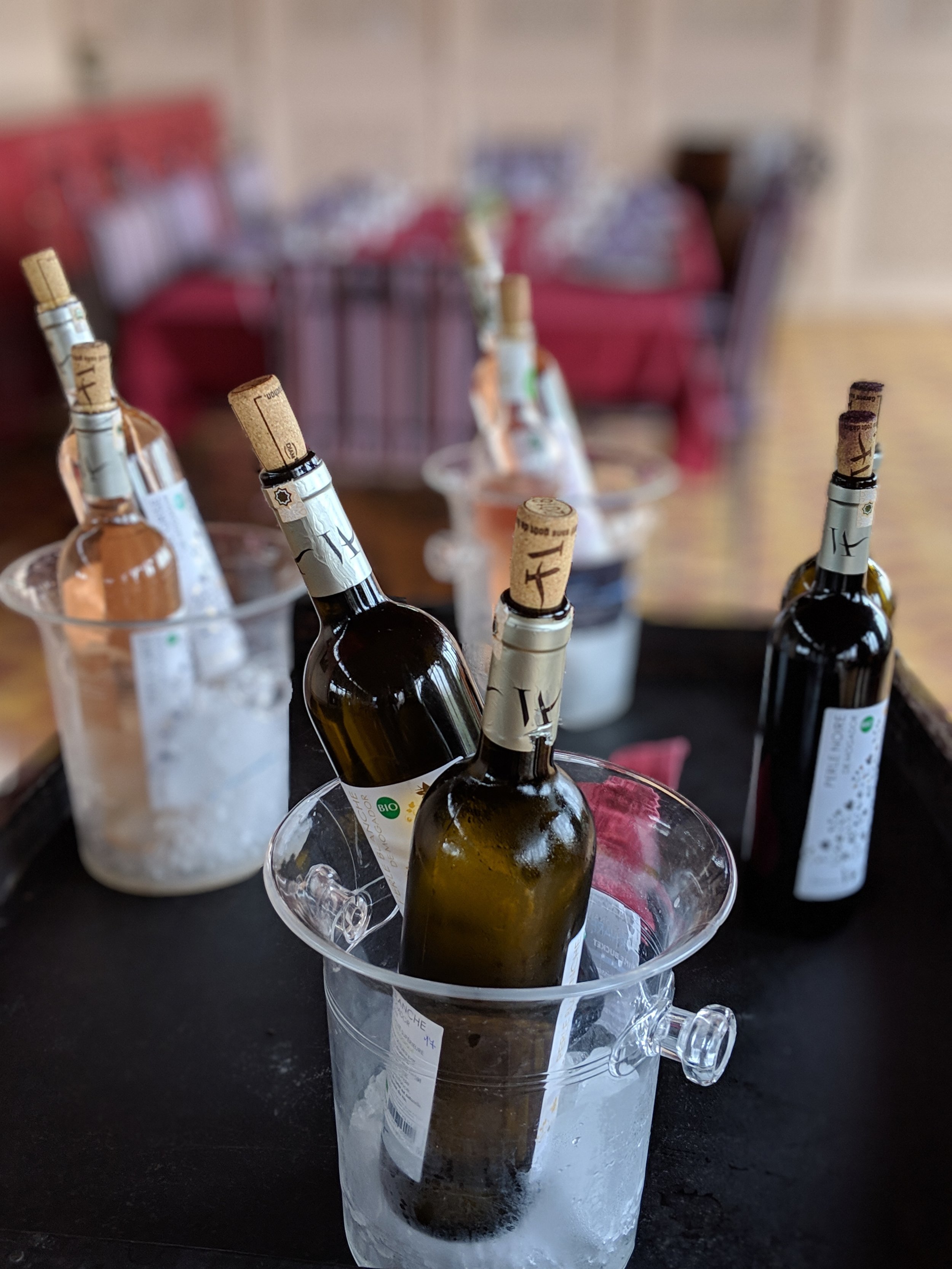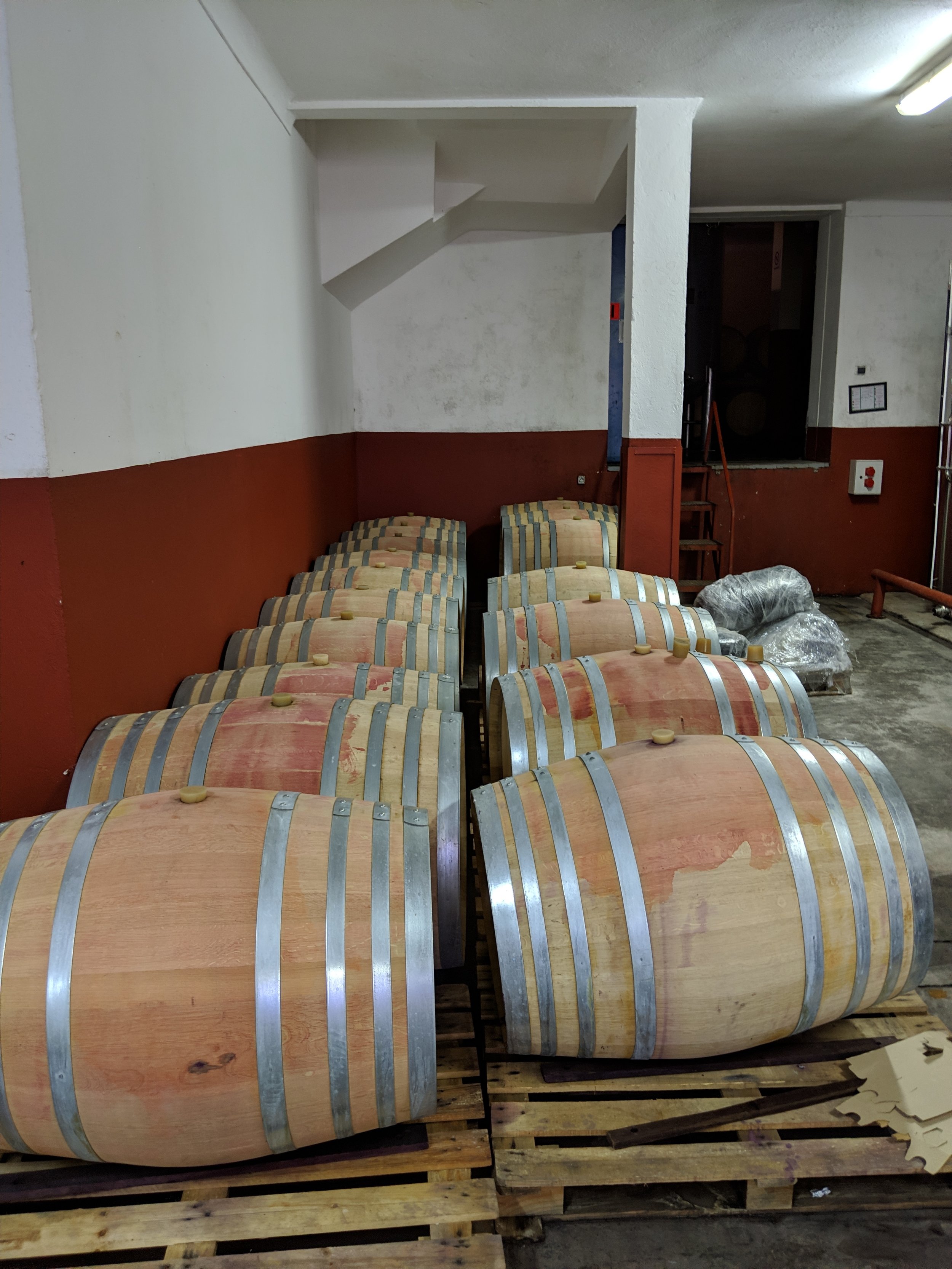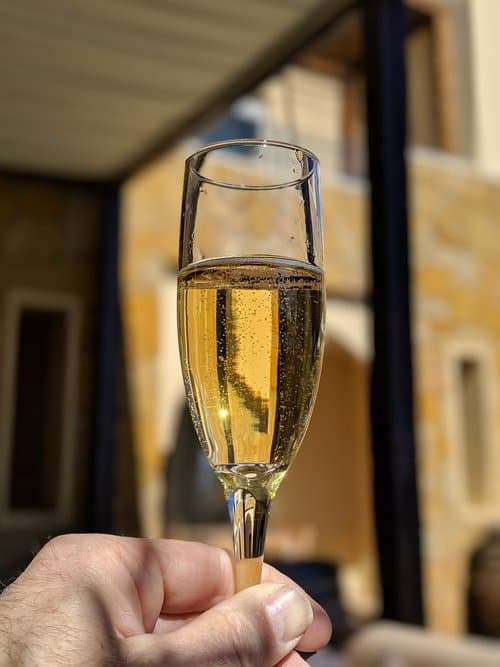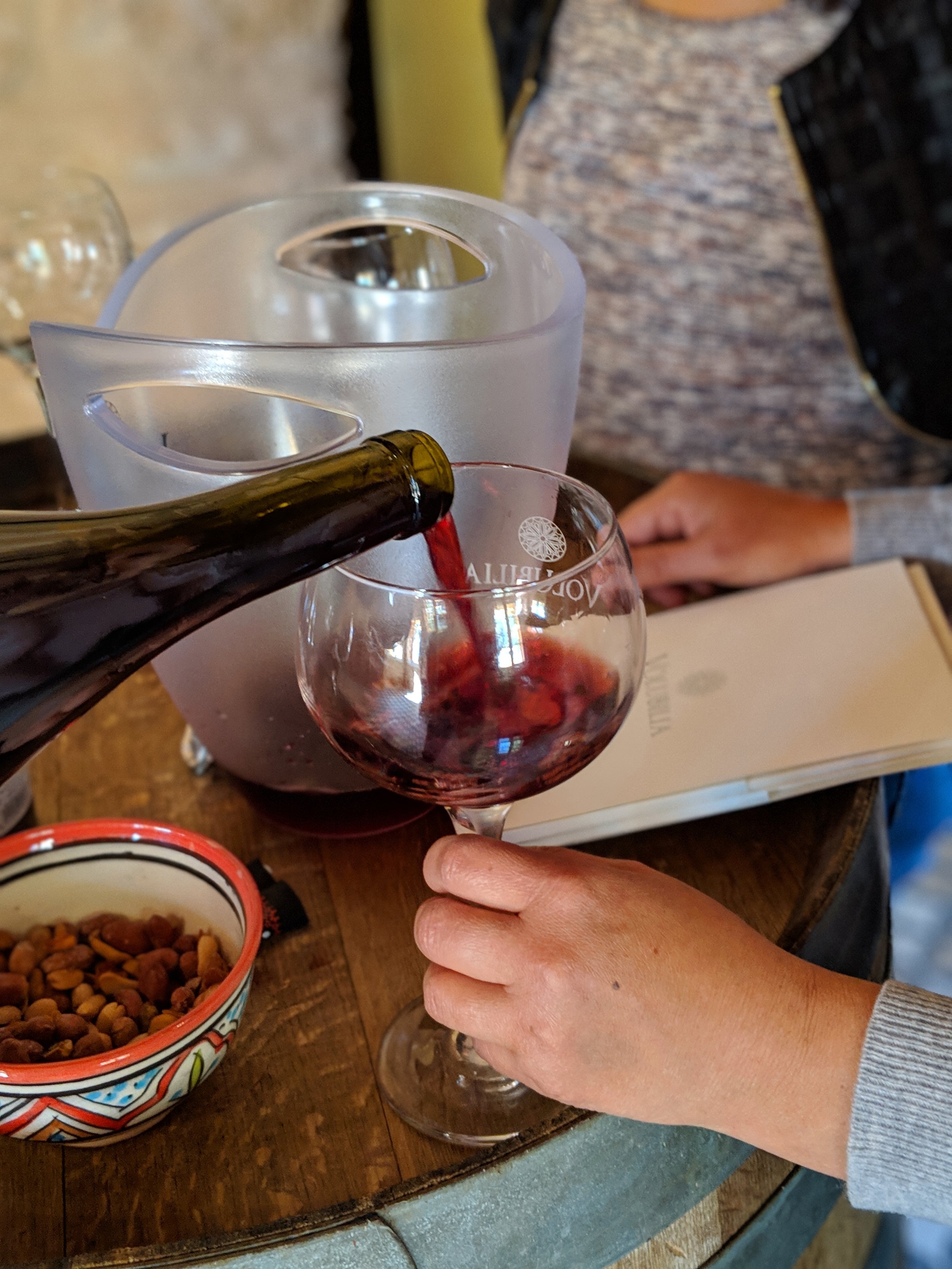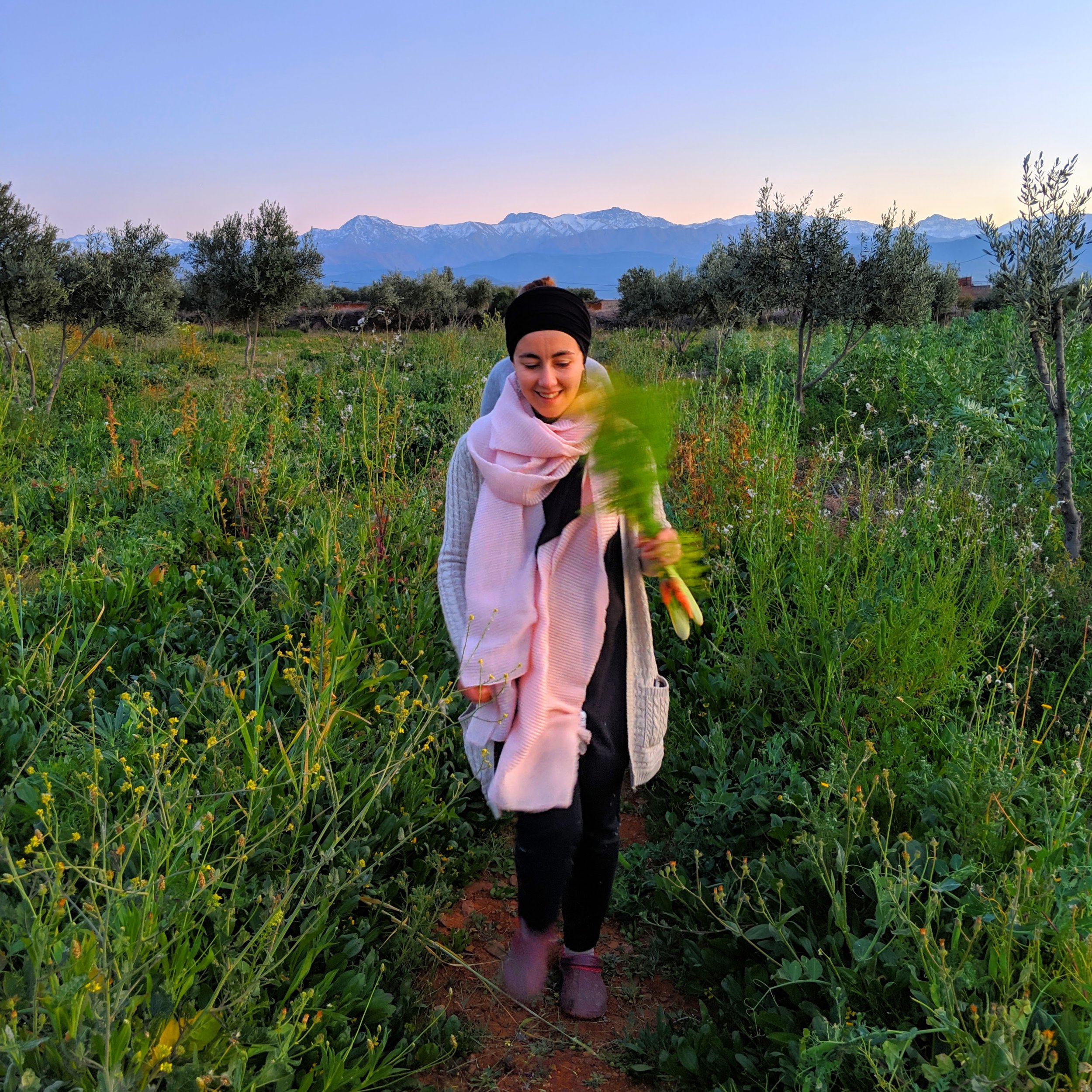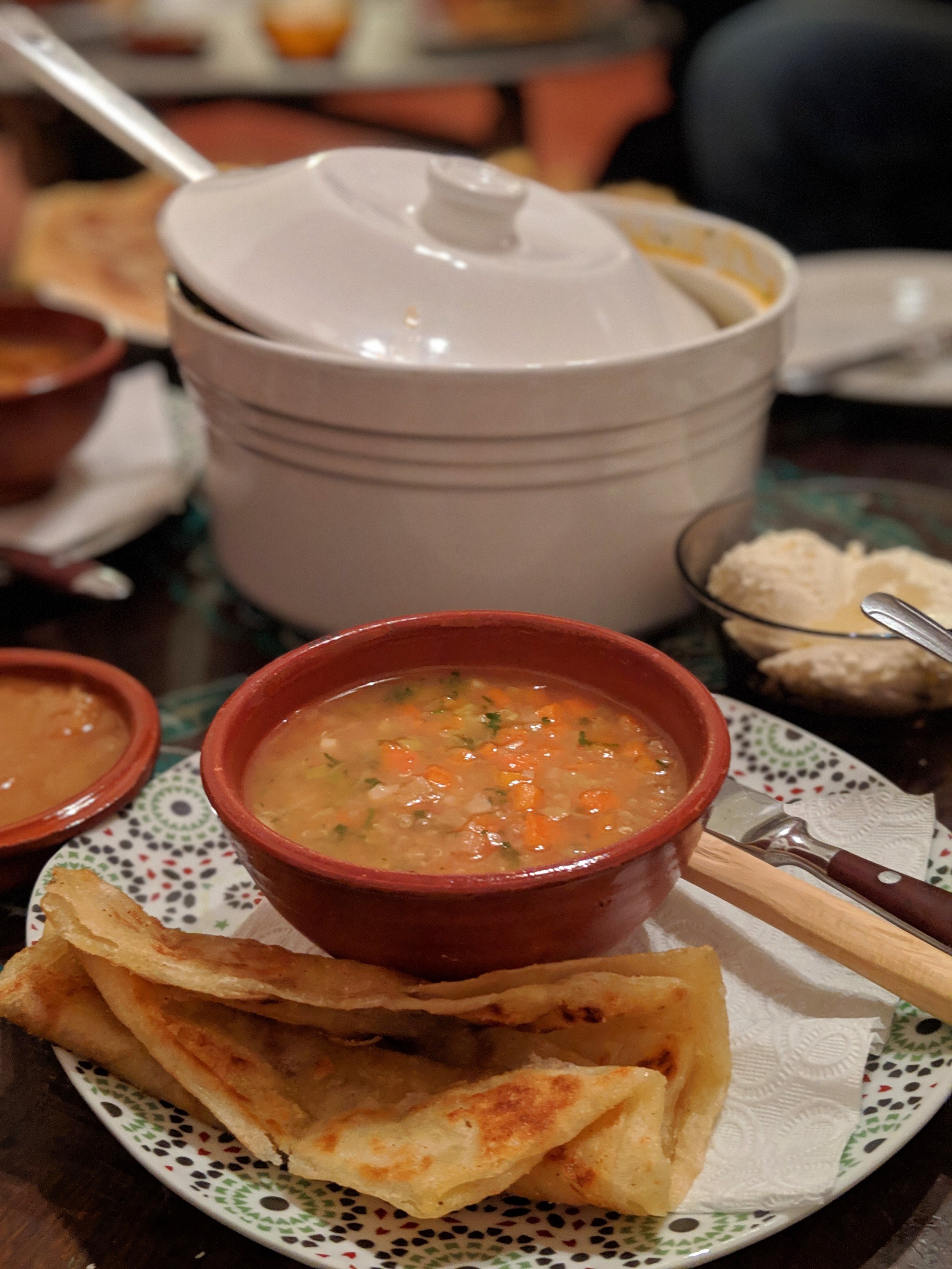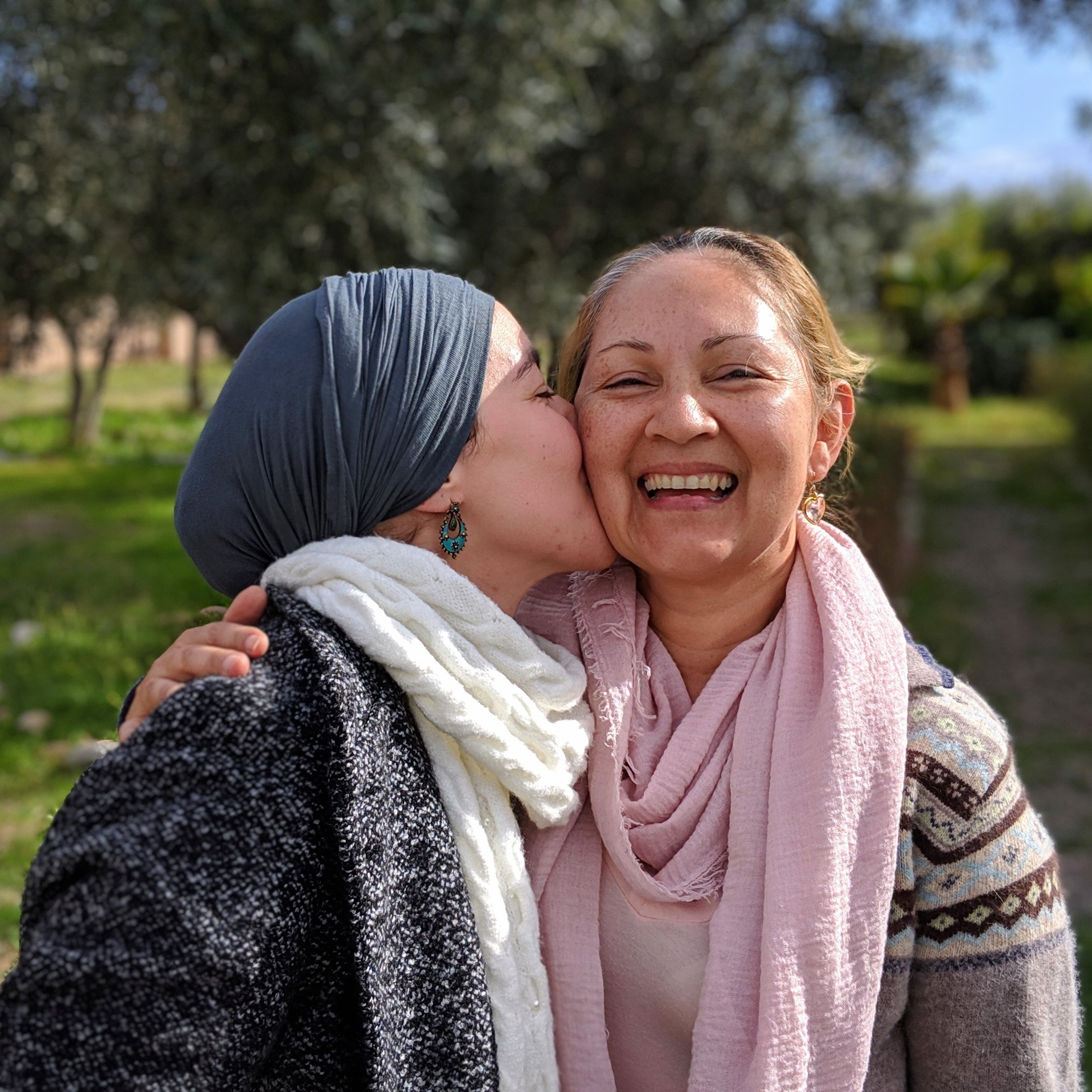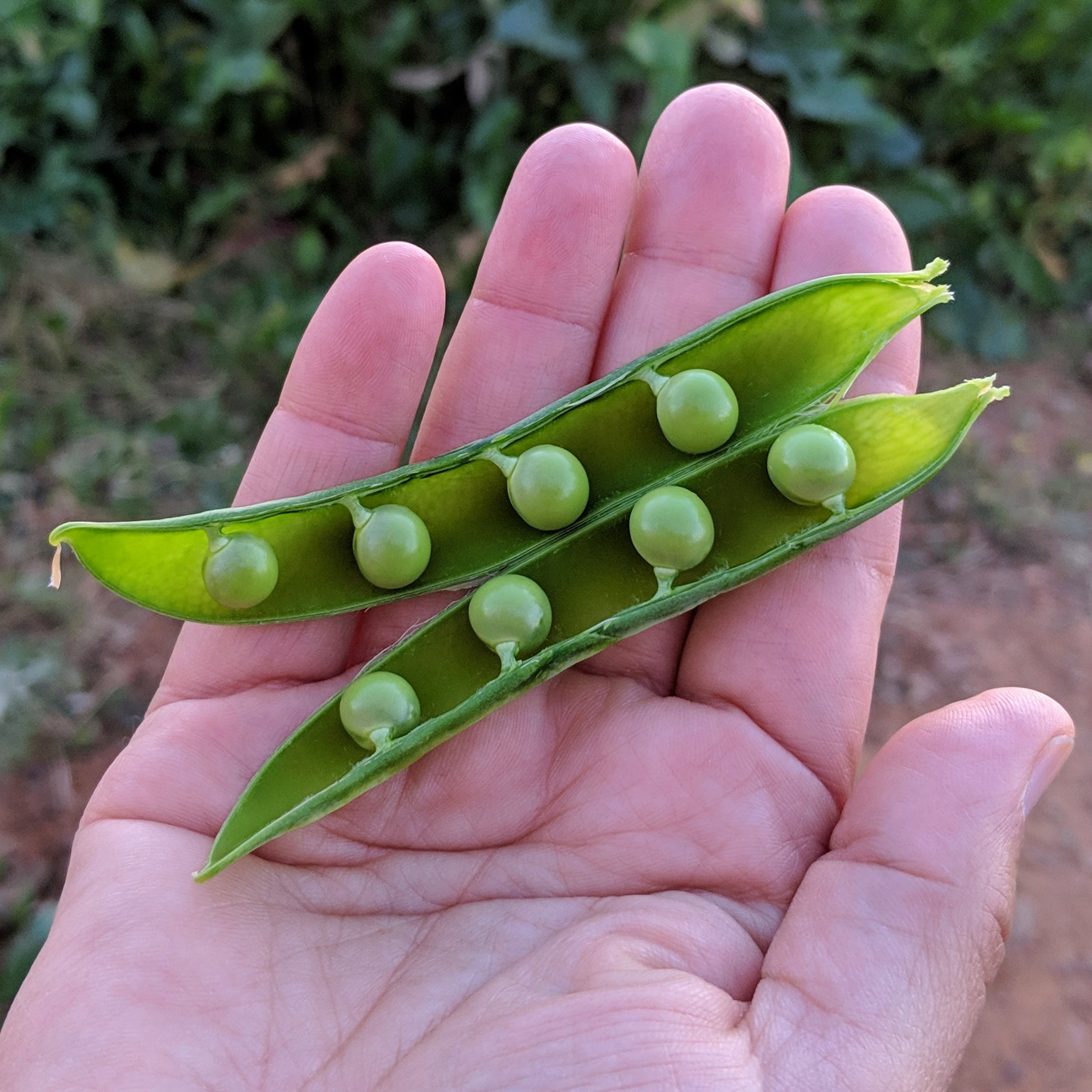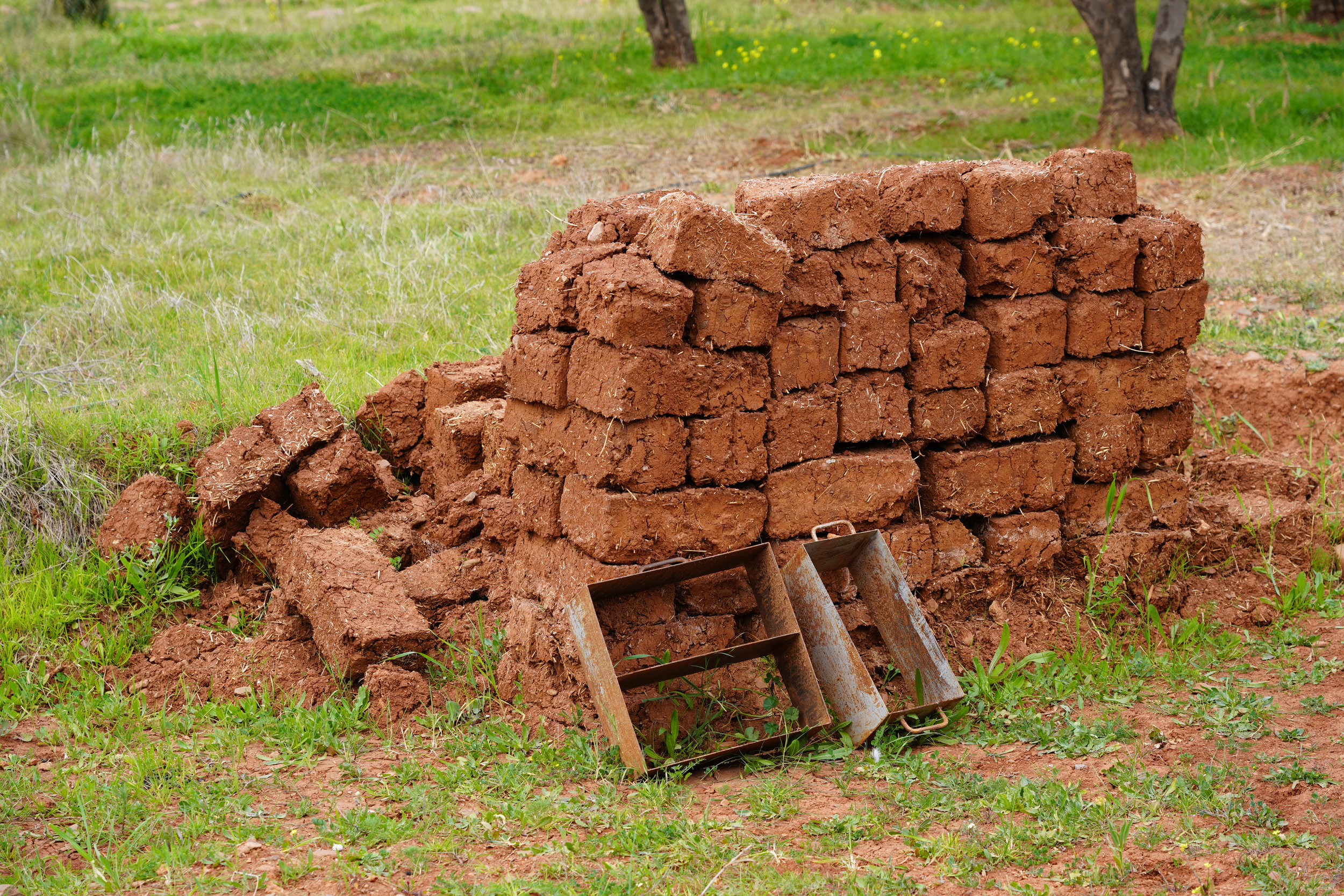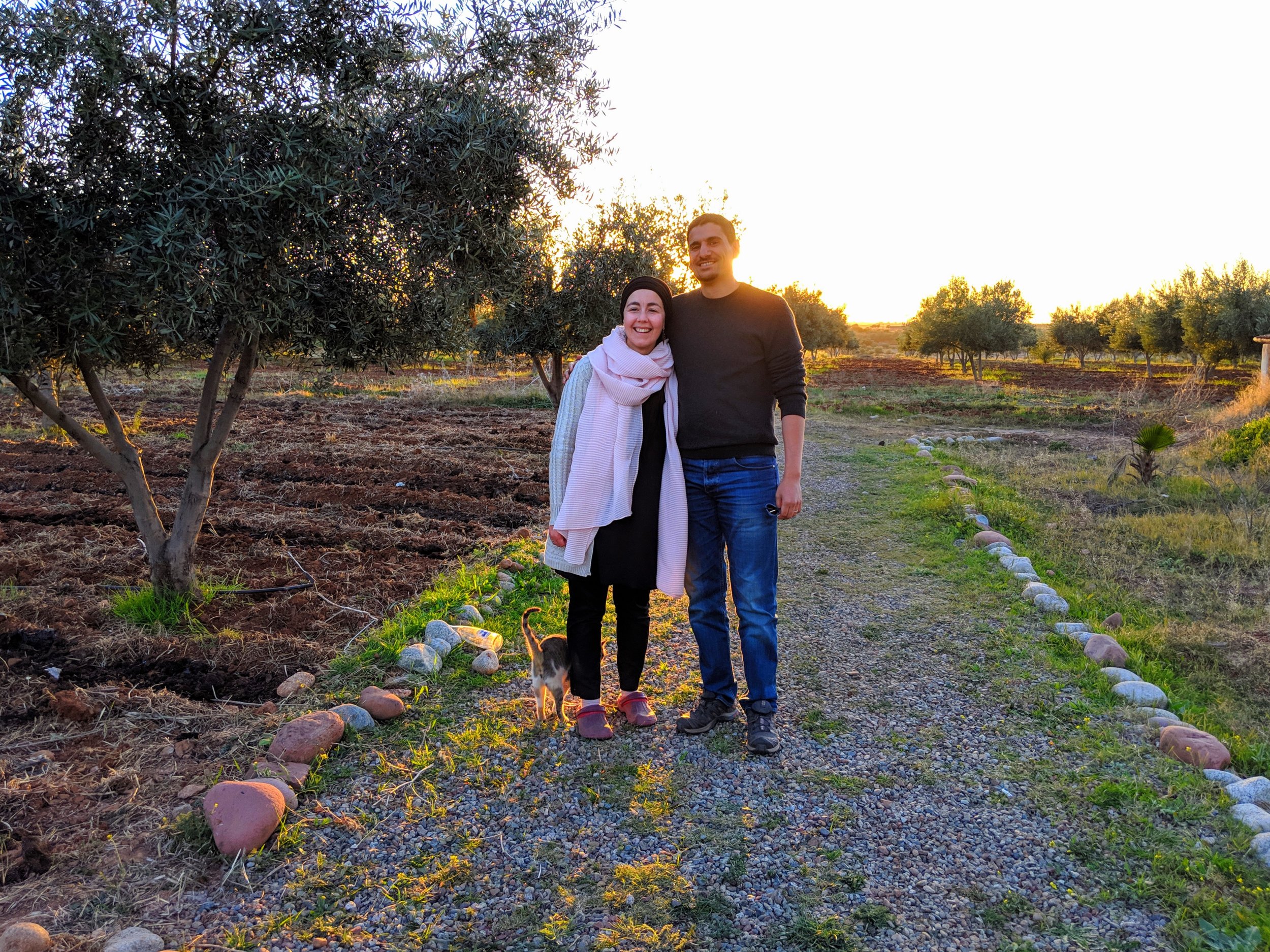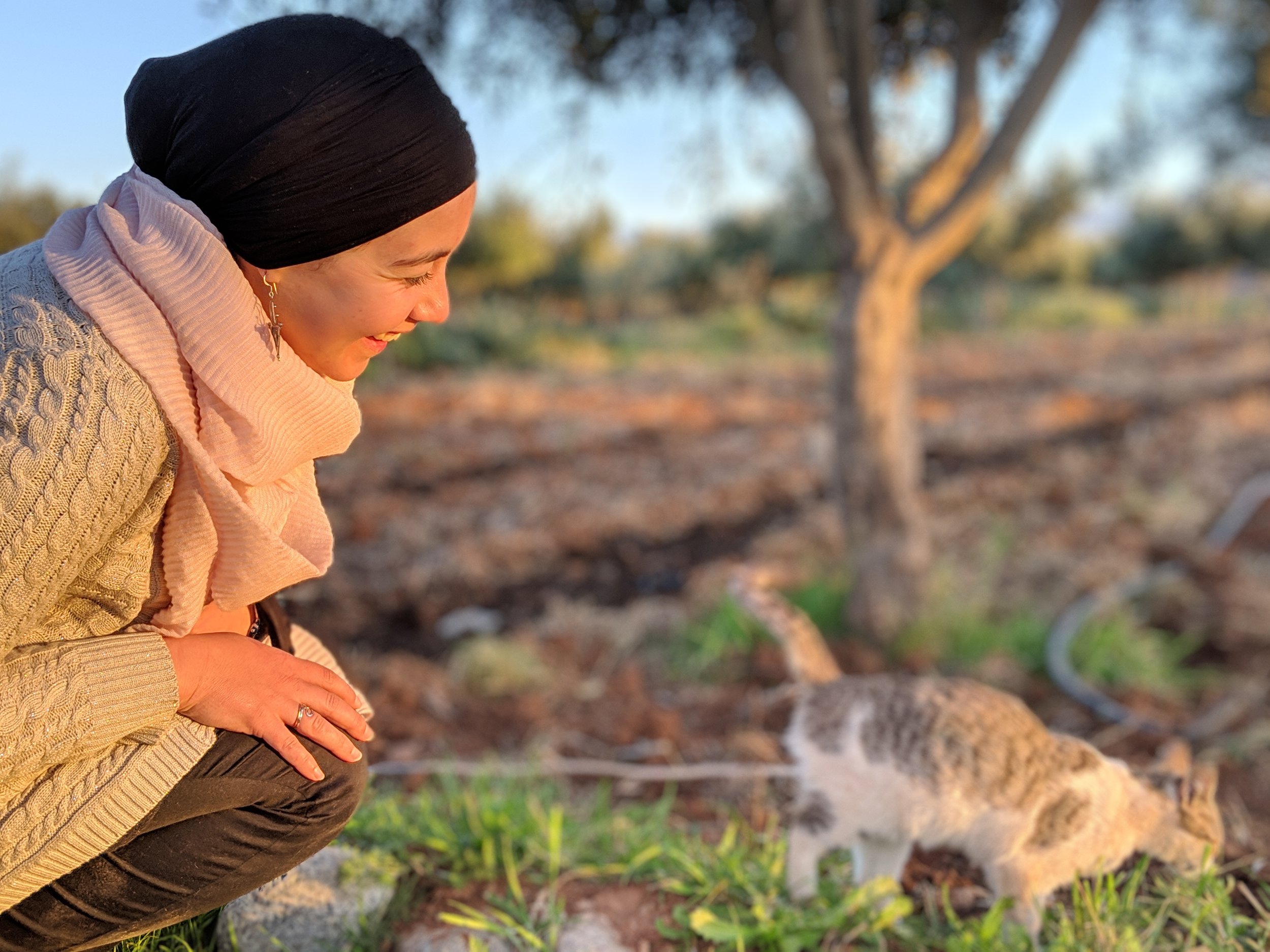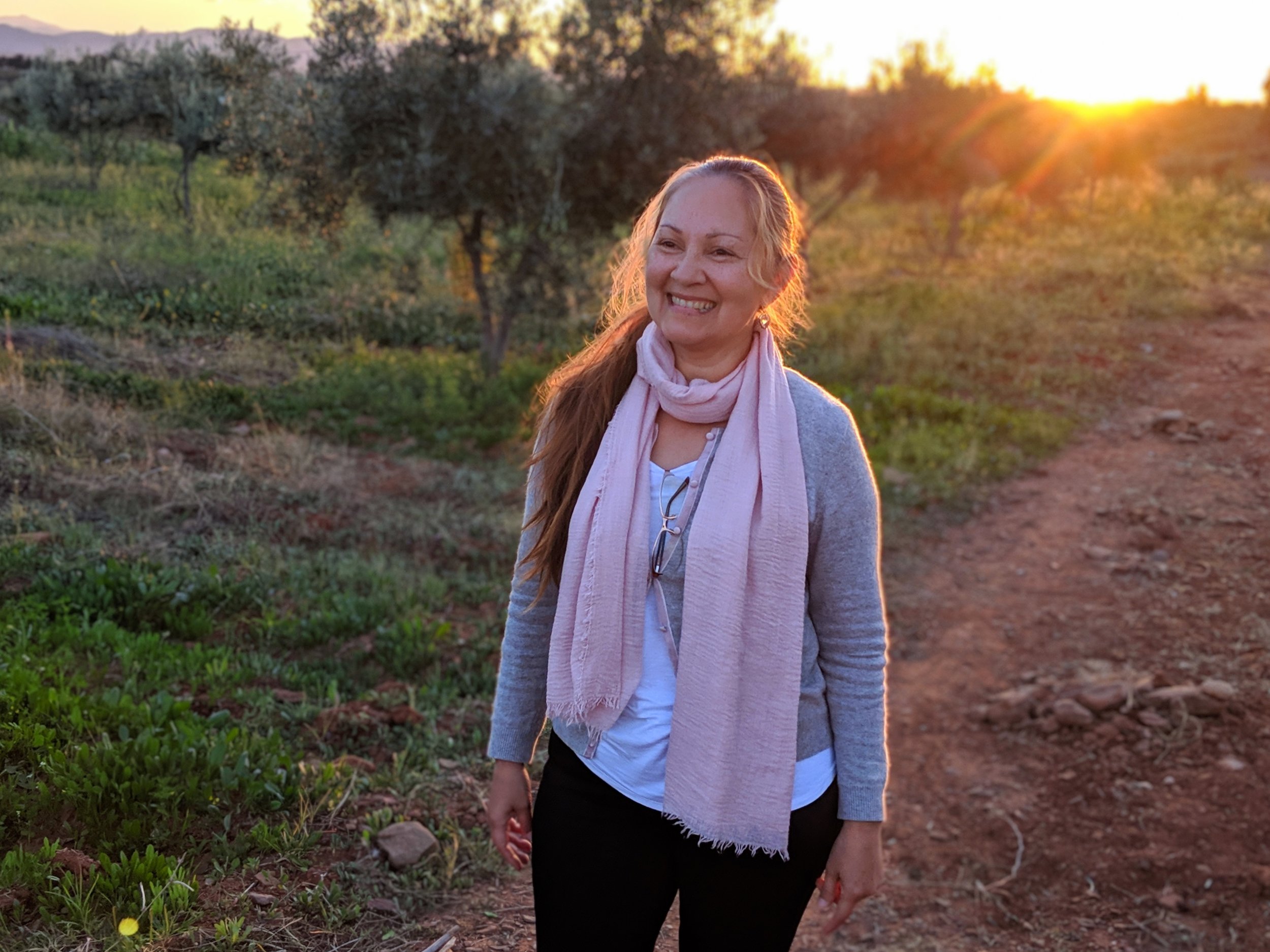On a beautiful morning recently, we sat with our lovely guests and Moroccan friends during our recent Morocco Caravan Experience on the outdoor terrace of a Moroccan farmhouse sipping Moroccan mint tea. Surrounded by stony ground and argan trees, blue skies and white clouds, I was filled with awe by the beauty and perfection of it all.
We were learning about the artful ritual of making Moroccan mint tea in Morocco.
Though I can’t quite find the words to describe what the scene, the surroundings and the gathering evoke, I can tell you that it felt like magic. That feeling of overwhelming joy and wonderment that elevates the soul and uplifts the spirit.
There was something very sweet and heart-warming sitting on that terrace sipping on tea with that enticing and mouth-watering aroma of freshly made Moroccan mint tea. The ritual of serving mint tea is not only the art of tea perfected, but also an intentional act of kindness and hospitality.
But beyond that, what adds to the beauty of it all is the simple and aesthetically pleasing ceremony in the manner that the tea is made, presented and served. From the traditionally handcrafted and beautiful Berber tea pot to the traditional terracotta stand for holding the boiling water above coals, the serving tray and Moroccan-made glasses and even tea pot holder, the entire experience evokes old-world hospitality.
The tea ceremony and ritual require skill. Stretching the arm holding the tea pot as high as it can go, often while holding a tray and perfectly pouring tea with a constant and perfect stream of the golden tea without spilling any of it outside the glass. It’s always amazing to witness such skill, precision and grace.
Moroccans serve mint tea to their visitors not only as a gesture of warmth and hospitality but also kindness, appreciation and gratitude. There’s is so much beautiful intention and meaning behind it all.
Drinking mint tea is an essential part of Moroccan daily life. It has no boundaries. It’s not predicated by socio economic status and it’s as universal as drinking water, if not more prevalent. The serving of tea in Morocco always comes before business or social interaction and always at the end of a meal.
Humans need rituals and traditions. But our busy lives and packed schedules often convince us to sacrifice those rituals in place of practical expediency.
But the ritual of Moroccan tea is a great reminder that there are more important things in life than rushing around and getting down to business.
The ritual of serving Moroccan mint tea for every occasion of encounter in Morocco is the epitome of the warmth and beauty of Moroccan hospitality. It’s a wonderful and purposeful demonstration of the joy of gathering as you welcome visitors, friends or family into your space.
— Adventure and joy, Amira
